
Import - Export, Friperie
Selected Bales
A DUO BOOK PRESENTATION
04.05.2023, 19.00-22.00
Sam De Buysere, Miles Fischler, Axel Korban, Thor Salden, Stine Sampers & Joud Toamah
& EXHIBITION
05.05—26.05.2023
Invited by
Mekhitar Garabedian
You are cordially invited to the opening of Import-Export, Friperie — Selected Bales, an exhibition marking the launch of Mekhitar Garabedian's book, Import-Export, Friperie.
Garabedian's book is a photographic response to his eponymous one-year public sculpture, commissioned for the Antwerp Stadspark "Public Figure" plinth series in 2022—23. Both the sculpture and the book take as their starting point the second-hand textile company which the artist's late father established in Ghent in the 1980s.
Through the long-term project Import-Export, Friperie, Garabedian traces the aesthetic, linguistic, and affective economies borne of a personal story of displacement and belonging. In keeping with the project's dialogic nature, he has invited for the BOEKS exhibition a number of artists to engage with Import-Export, Friperie, including Sam De Buysere, Miles Fischler, Alex Korban, Thor Salden, Stine Sampers and Joud Toamah.
"The six artists I have invited to react to or engage with "Import – Export, Friperie" all took the sculpture into their own being-with-the-world, their own artistic language, multiplying it into six other worlds. Through shifting, adding, subtracting, and changing the work, they have created different narratives and perspectives."
— Mekhitar Garabedian
For the occasion of the exhibition, their contributions come together in the publication Import – Export, Friperie. Selected Bales. During the opening, the book will be handed out as an accompanying insert as well as Arak, a traditional drink found across the Mediterranean and the Middle-East, will be served.
With thanks to Liene Aerts (BOEKS), Katrien Vuylsteke Vanfleteren and David Depestel (Research Department, KASK & Conservatorium), Arthur Haegeman and Thomas Desmet (Graphic Design Department, KASK & Conservatorium), Samuel Saelemakers (Collectie Kunst in de Stad — Middelheim Museum, Antwerp), Sara Weyns (Middelheimmuseum), Sara De Bondt and Antony Hudek (Occasional Papers), Nina Hendrickx, and, not least, Yalla Yalla.
Import - Export, Friperie
Author
Mekhitar Garabedian
Design
Sara De Bondt
Year
2023
Publisher
Occasional Papers
Printer
Die Keure
€22 / €18 for KASK & Conservatorium students
Browse and buy at the Kunstenbibliotheek front desk or online from Occasional Papers
The publication follows the public presentation of Mekhitar Garabedian’s eponymous sculpture Import - Export, Friperie (2022) in the Antwerp Stadspark from May 2022 to April 2023. The sculpture is the fourth in the Public Figure series commissioned by Samuel Saelemakers, curator of the Antwerp Public Art Collection (Collectie Kunst in de Stad/Middelheimmuseum), which invites artists to make new work in response to the question “Who or what do we put on a pedestal today?”.
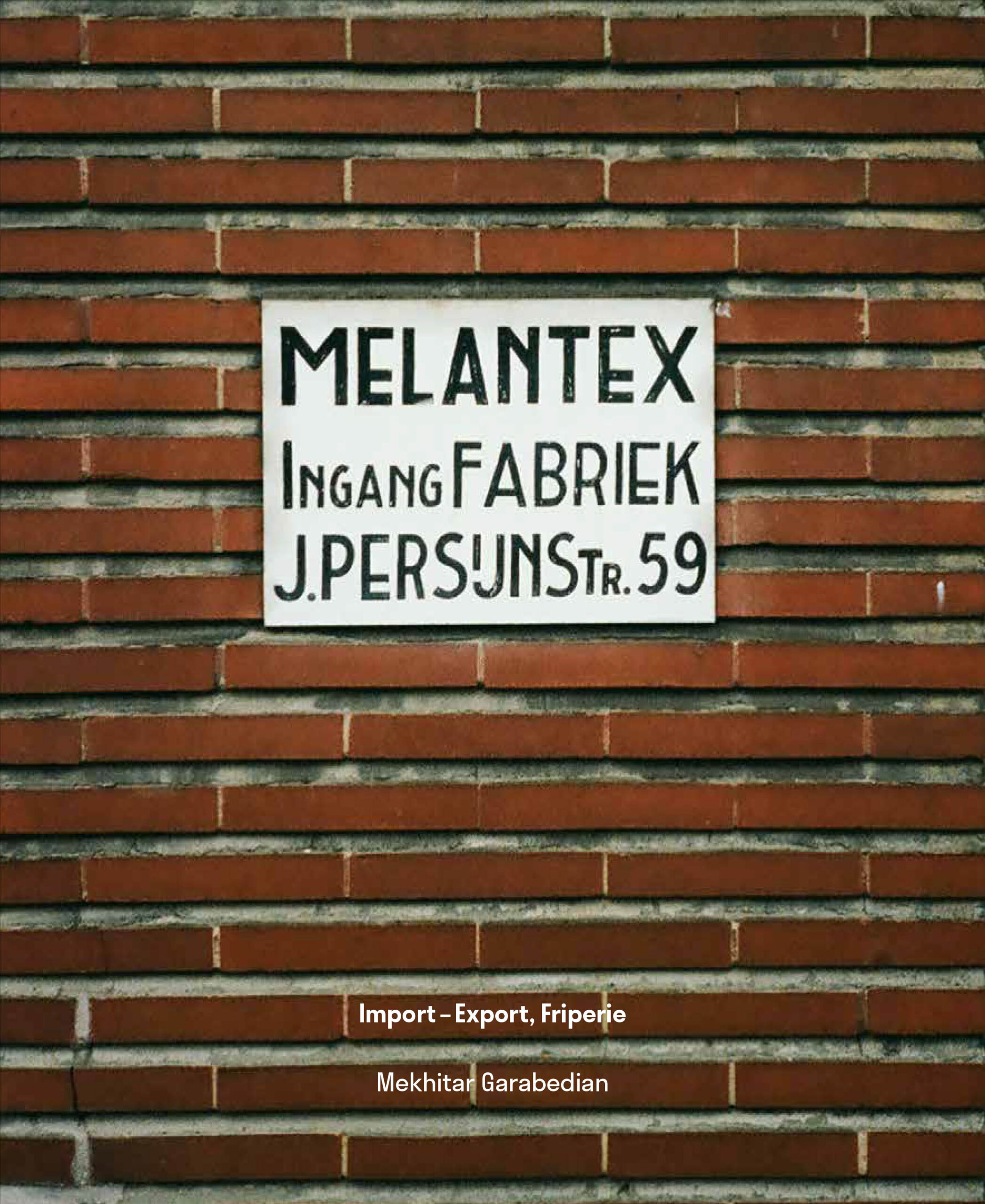

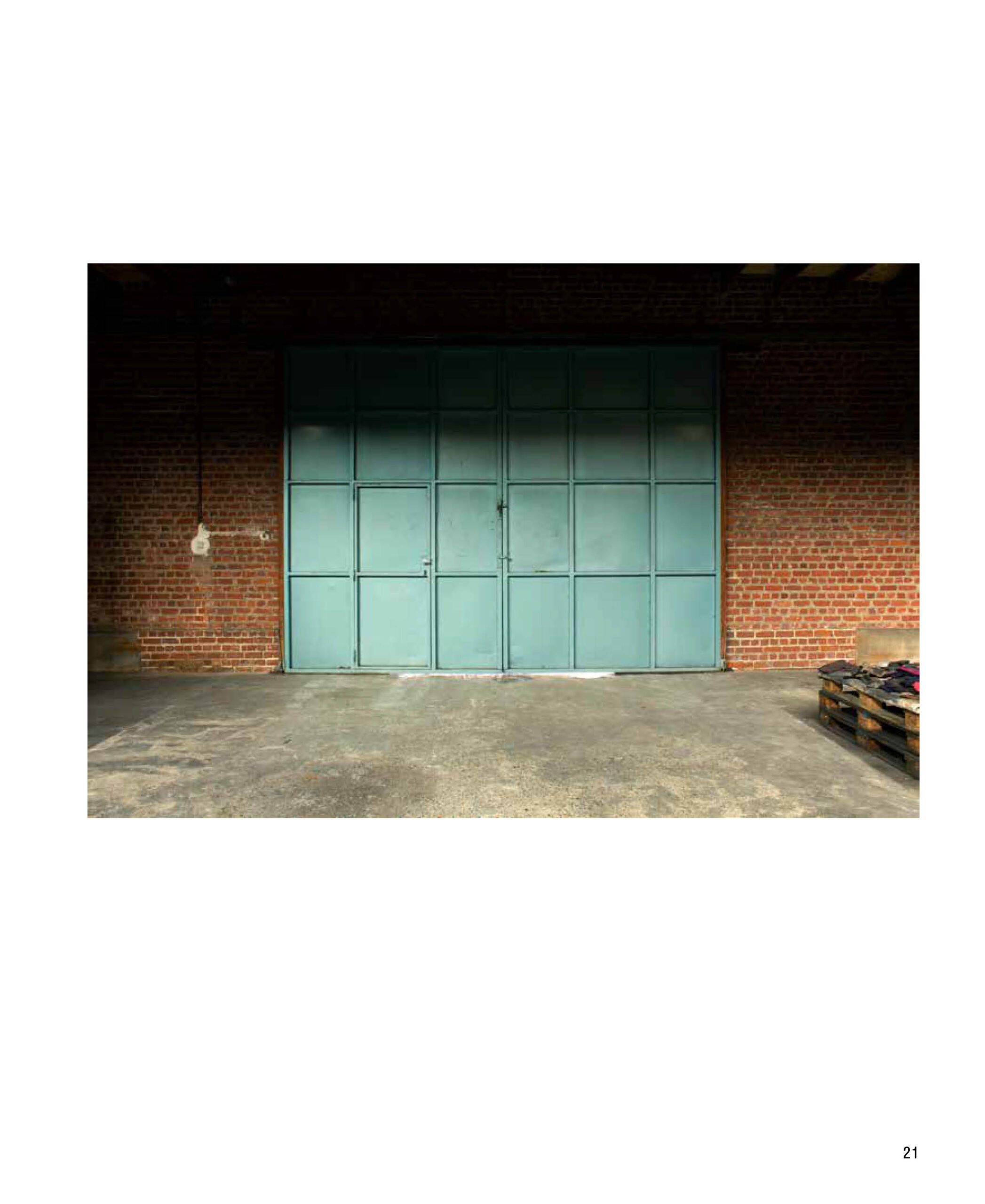
A selection of spreads from the book Import-Export, Friperie, as designed by Sara De Bondt
& quotes from Mekhitar Garabedian from the conversation between him and Samuel Saelemakers,
as published in the book (in order of appearance in book and text):
I felt that I had to document this space, my father’s warehouse, now. It was so central and near to us as a family, but I had never photographed it, not properly. Each time I was there, different things would attract me, like the objects or the light coming through the textured glass windows. The selection for this book is made from photographs I took between March and July 2012, the first time I visited the warehouse in this way. Later, I continued going there intermittently.
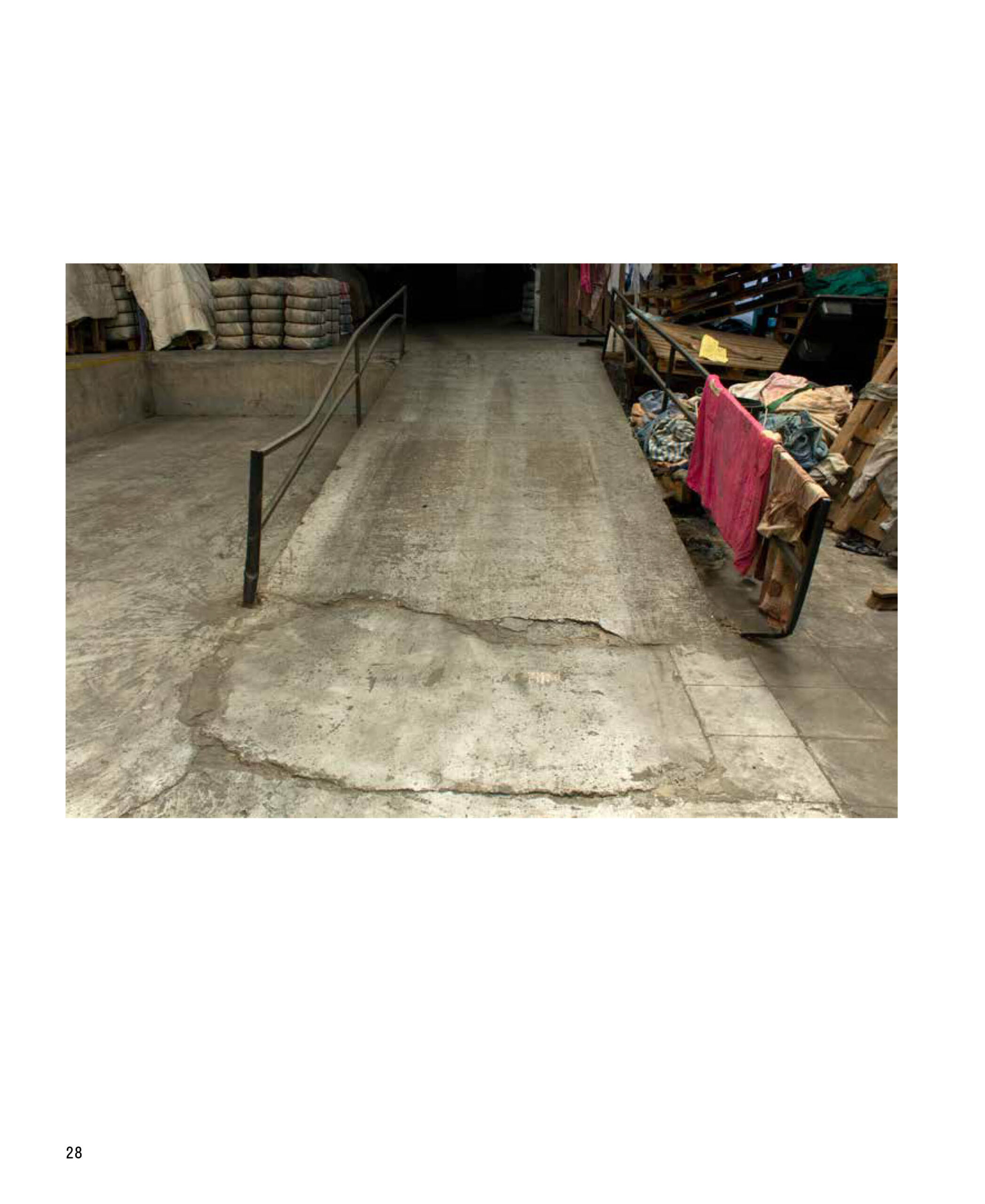
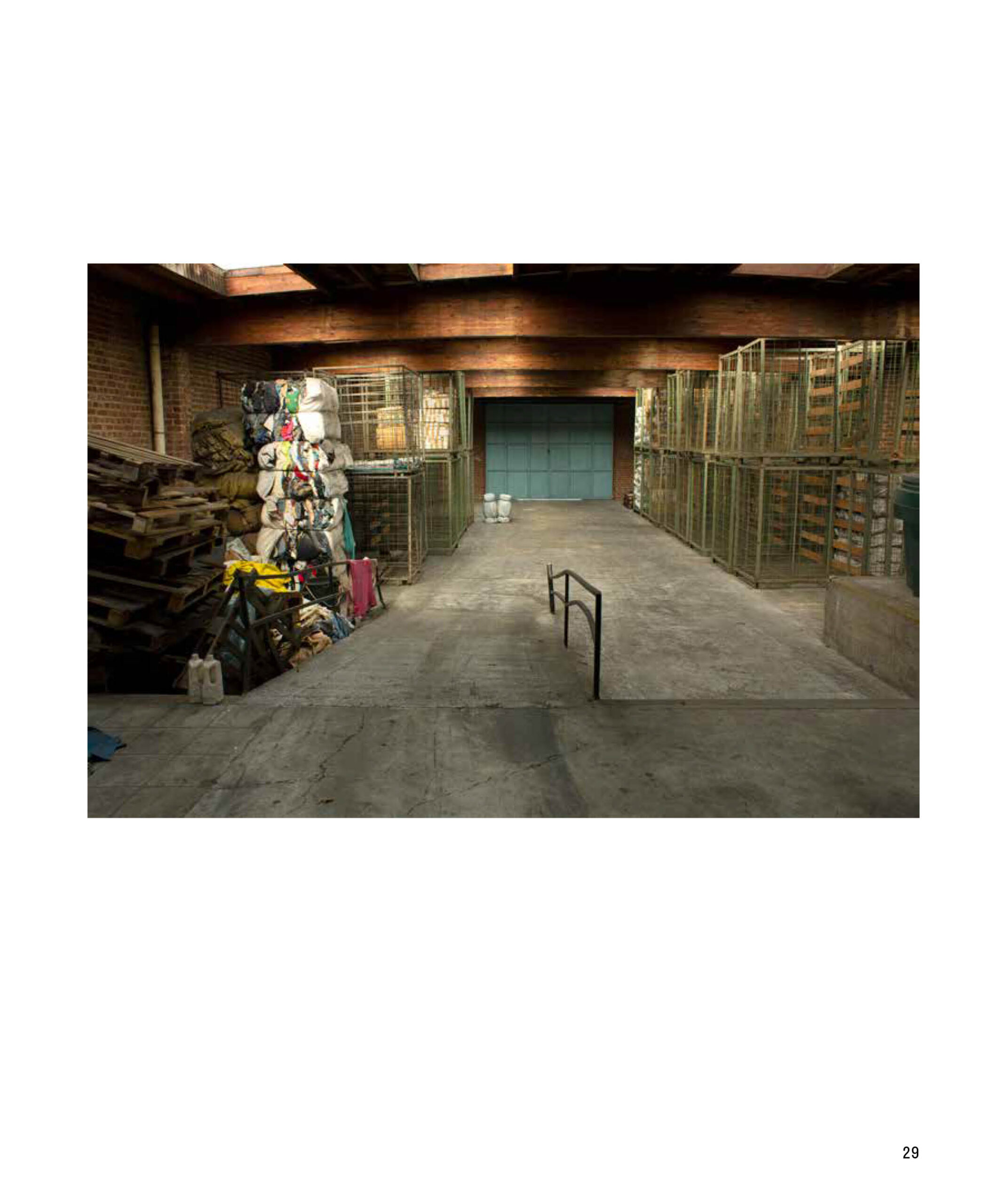
I took them when the warehouse was still, after working hours. What interested me as subject matter was not the labour that went on there. If that had been the case, I would have gone to other factories. I was interested in this place, the objects, the remains and the products of the activities, the bales of clothing and how they were stacked, as well as the packing, colours, and repetition.
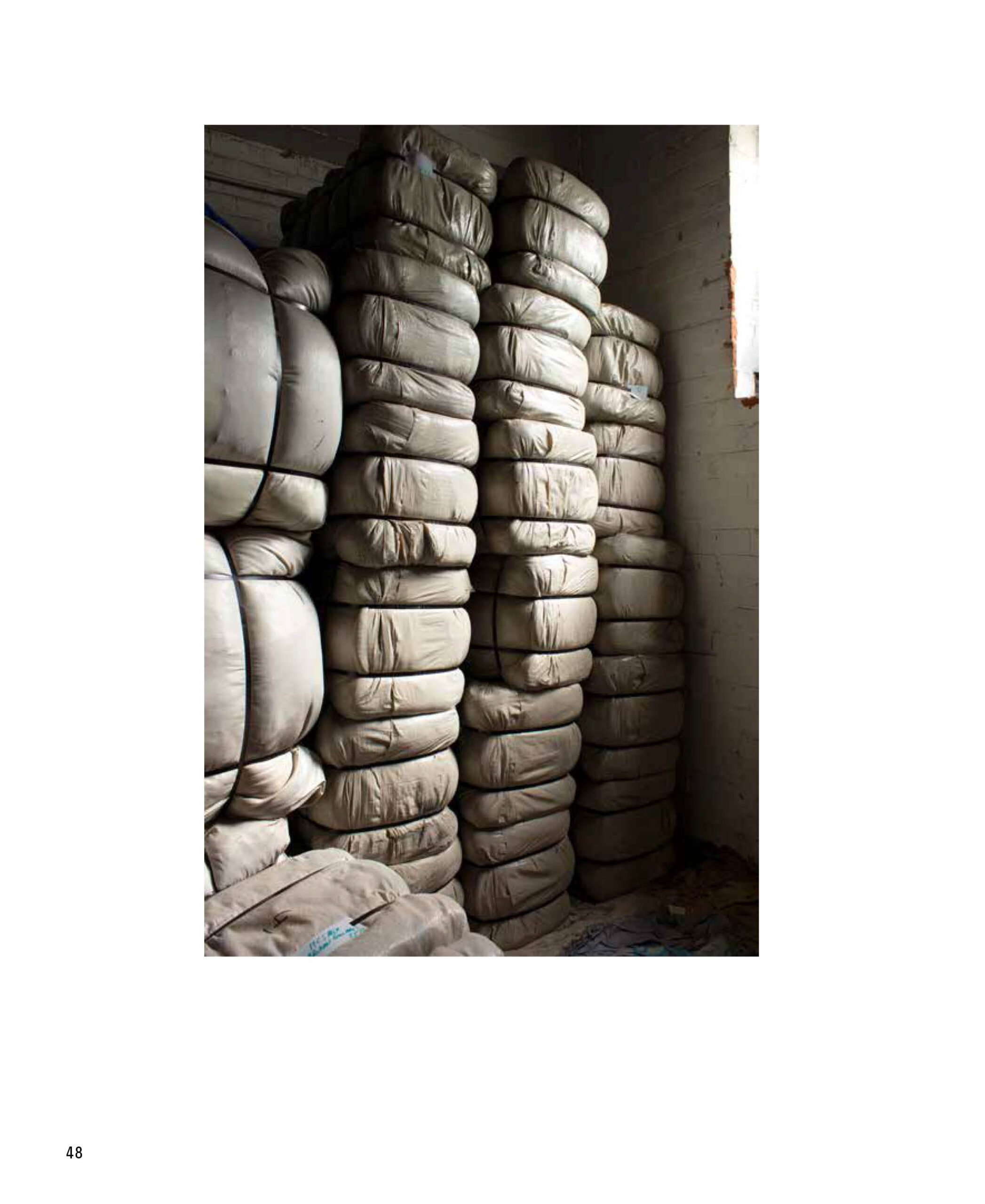
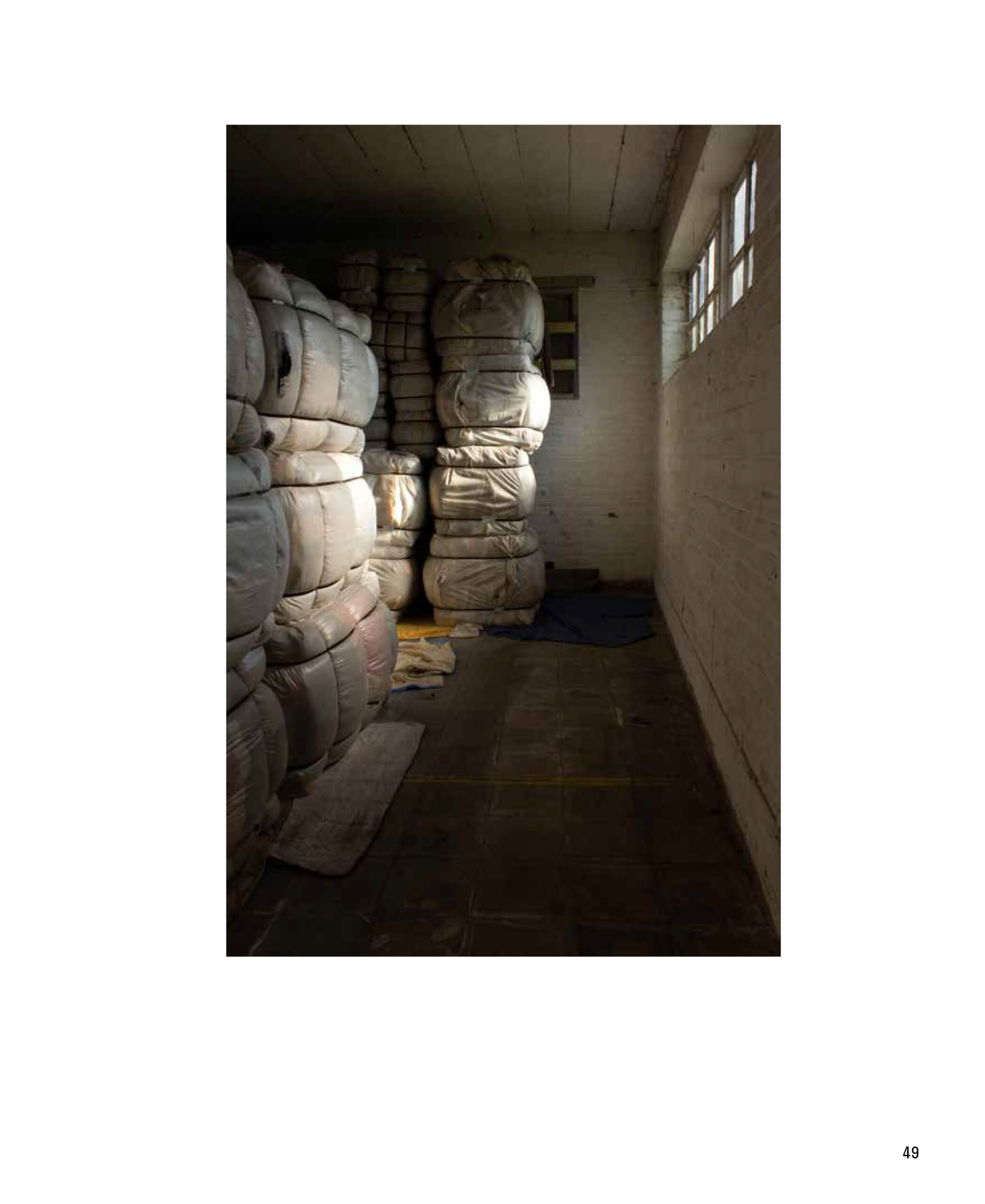
Another way to put it would be that the camera is a kind of archiving machine: every image it produces is a priori an archival object. In this sense, I think of these images from ten years ago as found images. Instead of making new ones, why not work with images that I’ve taken and ‘kept in a box’? Why not reuse them as ‘found’ objects? Because every photograph is a found object in a way.
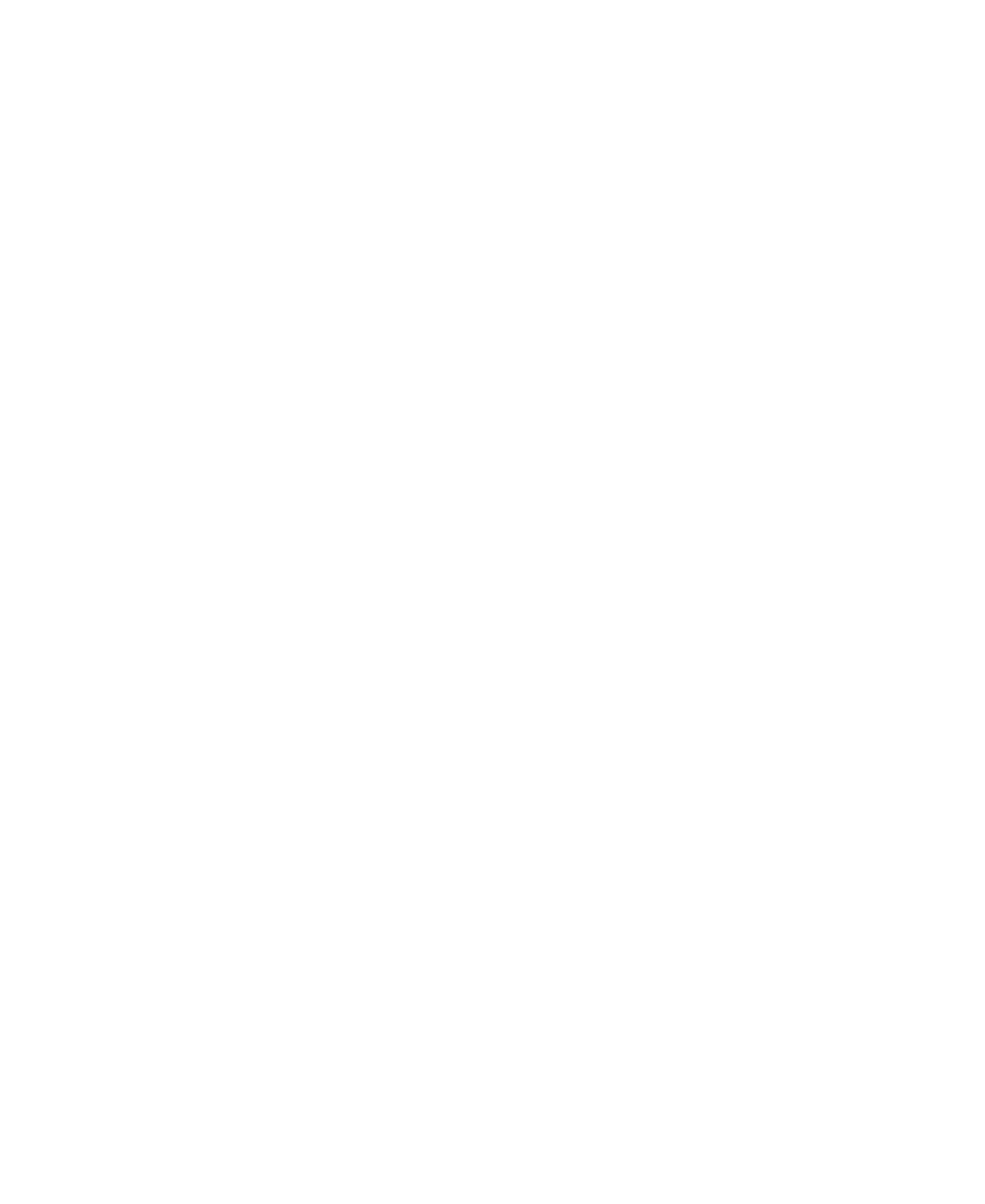
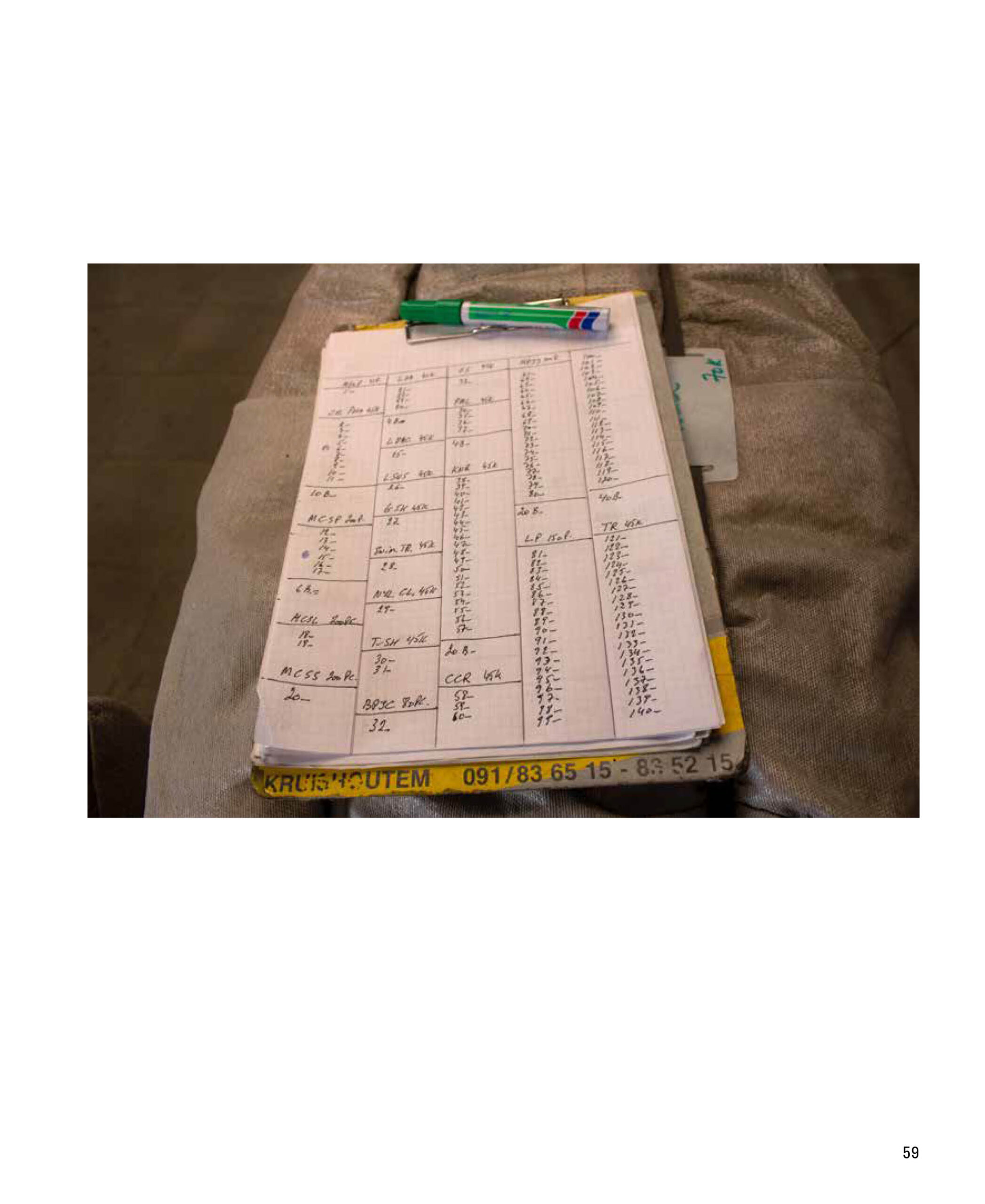
To come back to the photographs from 2012, I did feel like I was revisiting a partly forgotten self, the one who made the pictures, and rediscovering what he was trying to capture, seeing where it failed and worked. But my current self made the selection for this book, which could only be made now. Choosing the images was a slow process that took several months.
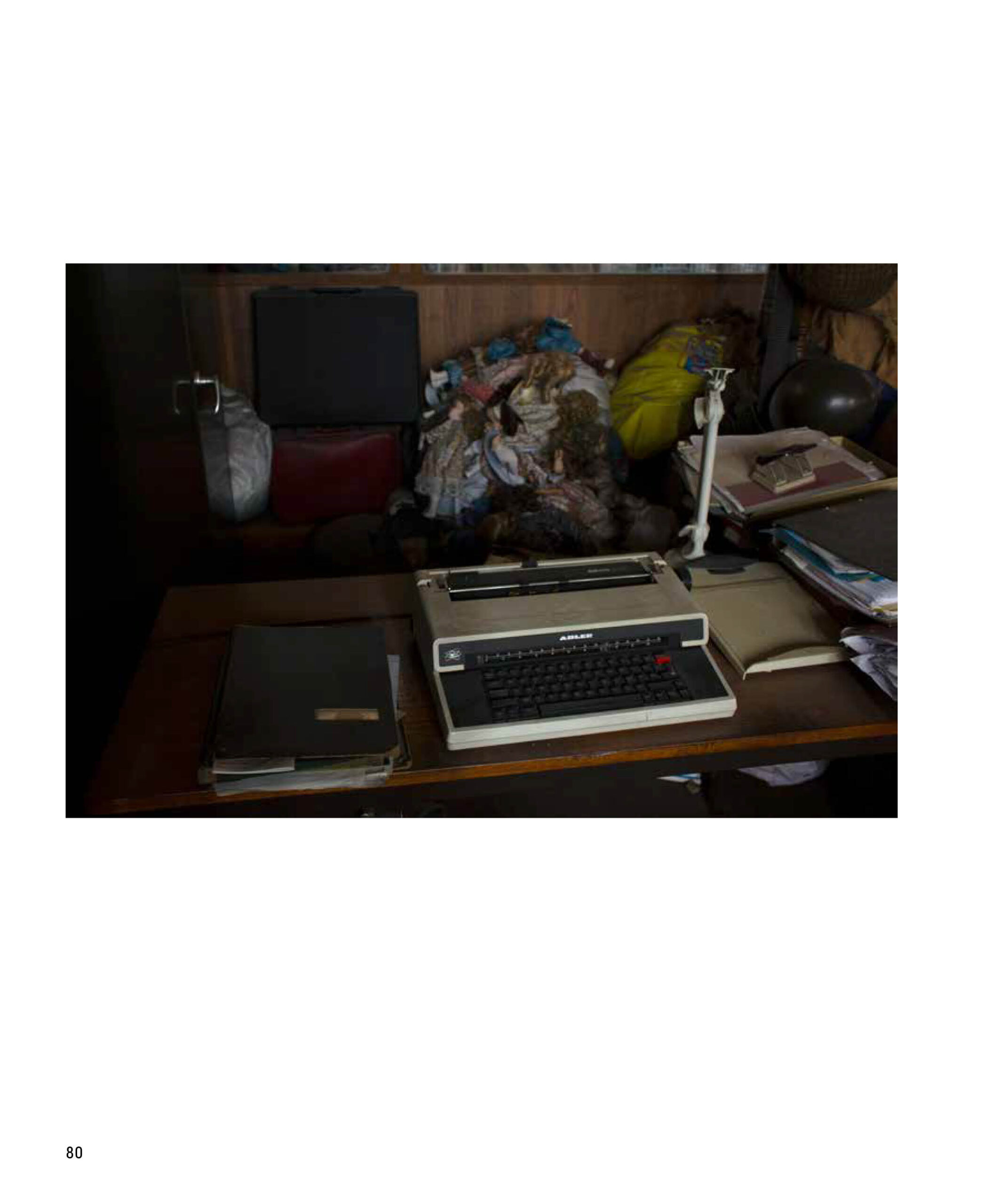
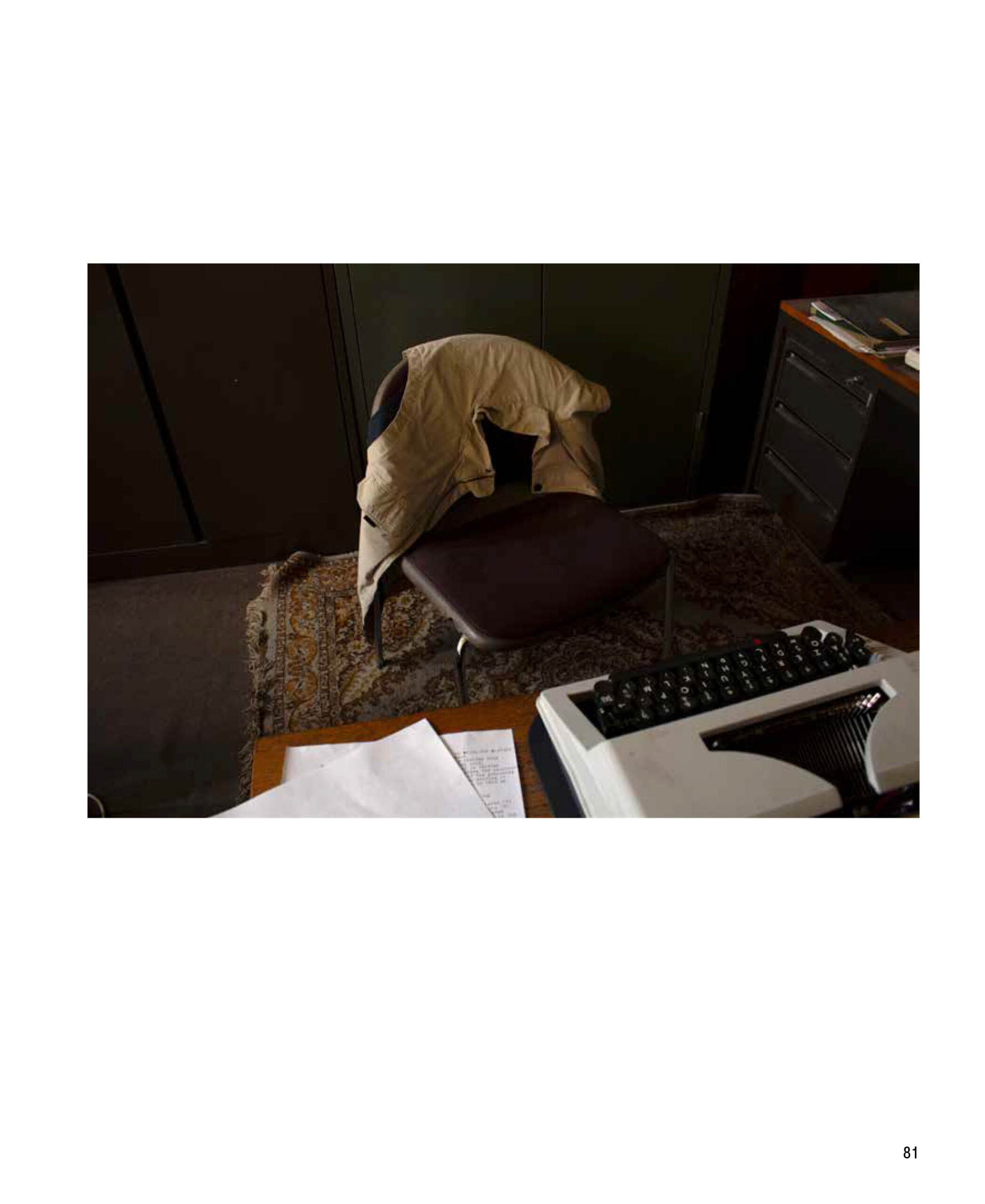
I turn to my family, documenting the parental house – mapping and scanning it – because it’s the place of everyday customs, like cooking, which carry markers of the diasporic experience. This experience is an intimate one. It affects subjectivity and the self. Diaspora means experiencing a disseminated, shattered, divided self.
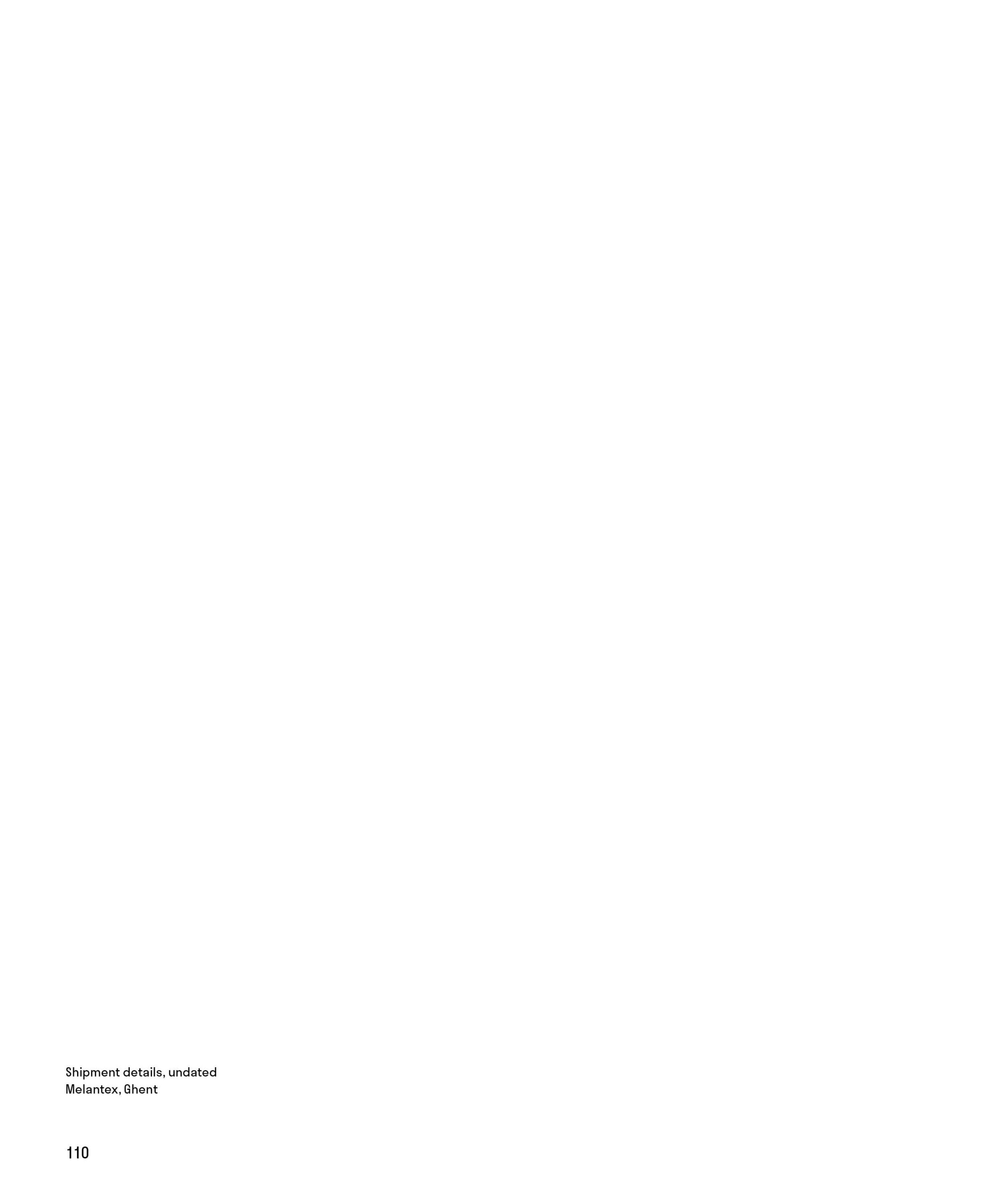
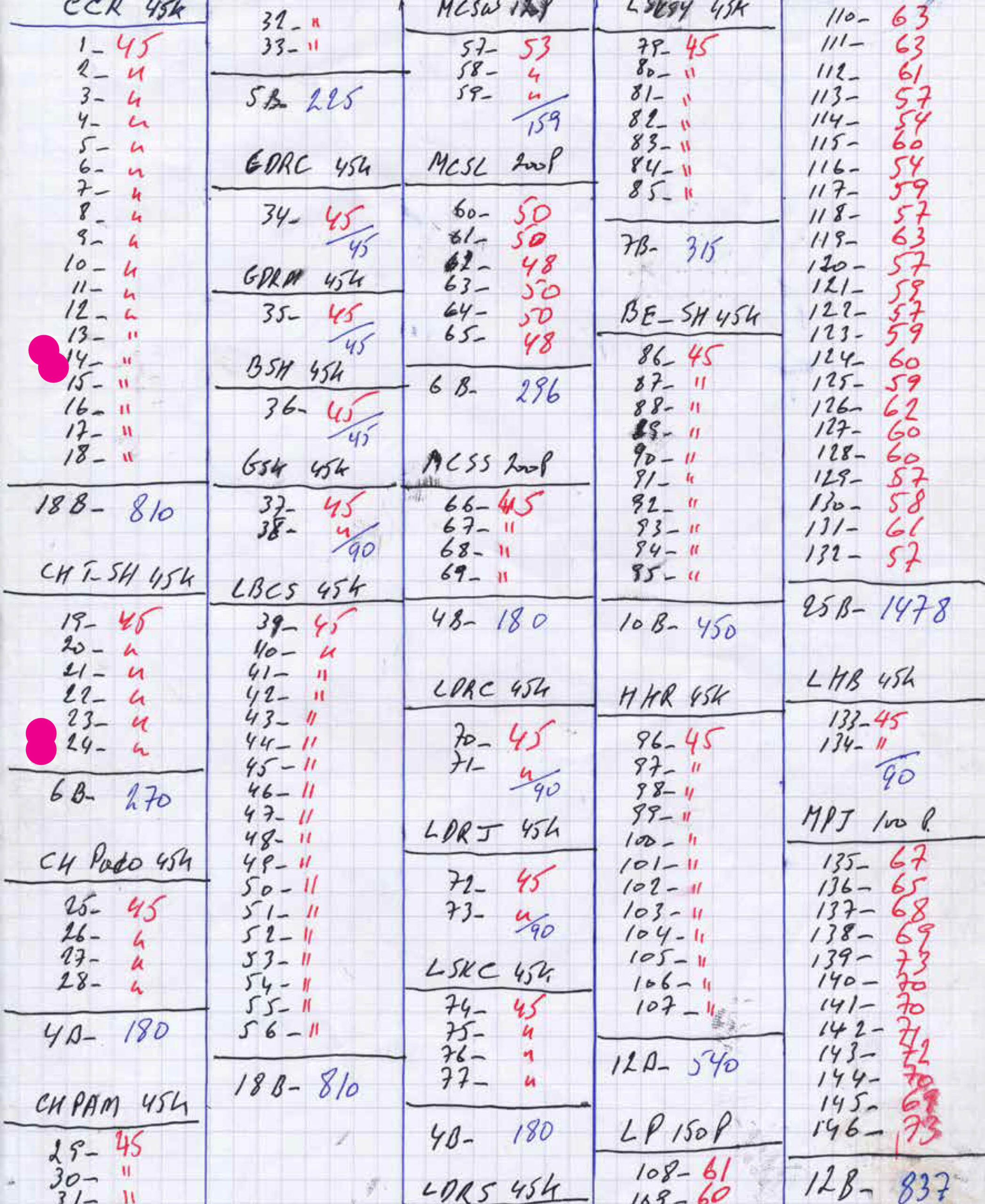
Placing casts of textile bales does focus the viewers’ attention on timelines of trade, transport, and exchange. In the 1980s, the export market for my father’s company was mainly Syria and Lebanon, because of economic sanctions prohibiting European exports to Syria. Later new export markets opened, such as Benin, Ghana, Ivory Coast, and Pakistan. While in Europe the clothing inside the bales were discards, they were valuable elsewhere, at least until the global spread of cheap, mass-produced new clothing. (…) My father worked beyond retirement age – he was seventy when the company closed. He was someone who worked a lot, and felt the decline of this economic model very closely. It was difficult for him to let go, and to see it come to an end. It must have been hard to admit that this part of his life had concluded. In the words of philosopher Vinciane Despret, this book is a way for me to keep “a space for him”
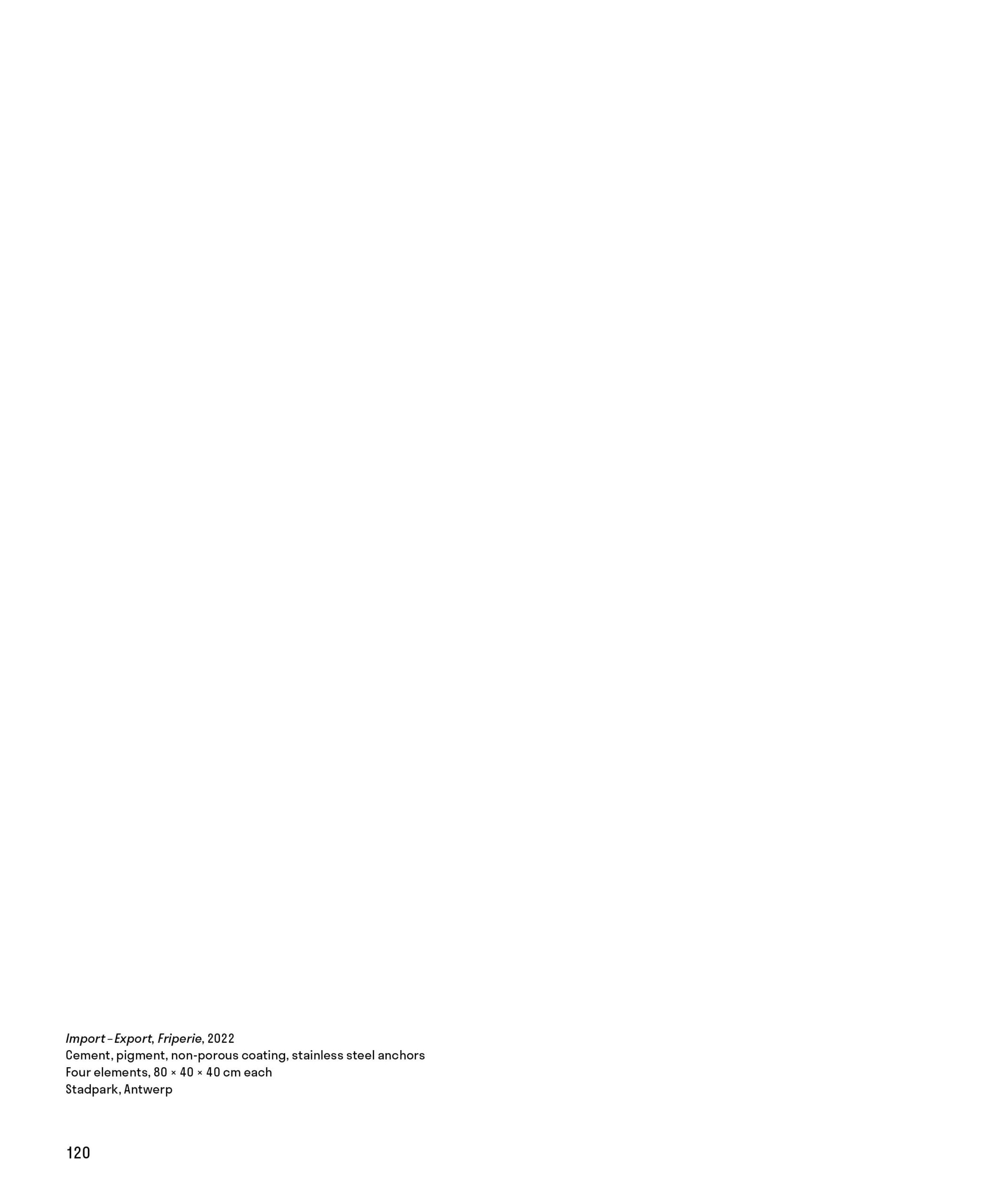
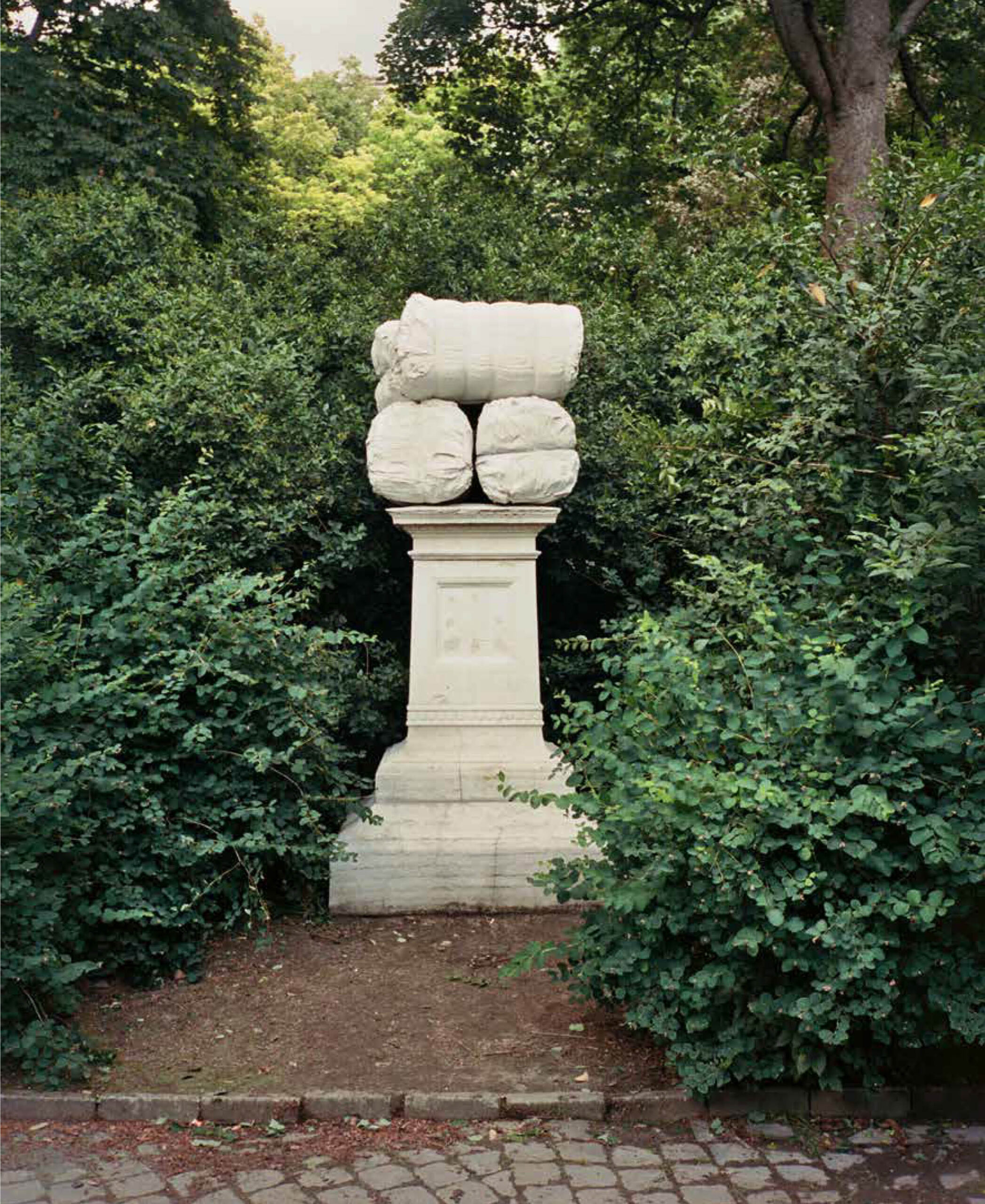

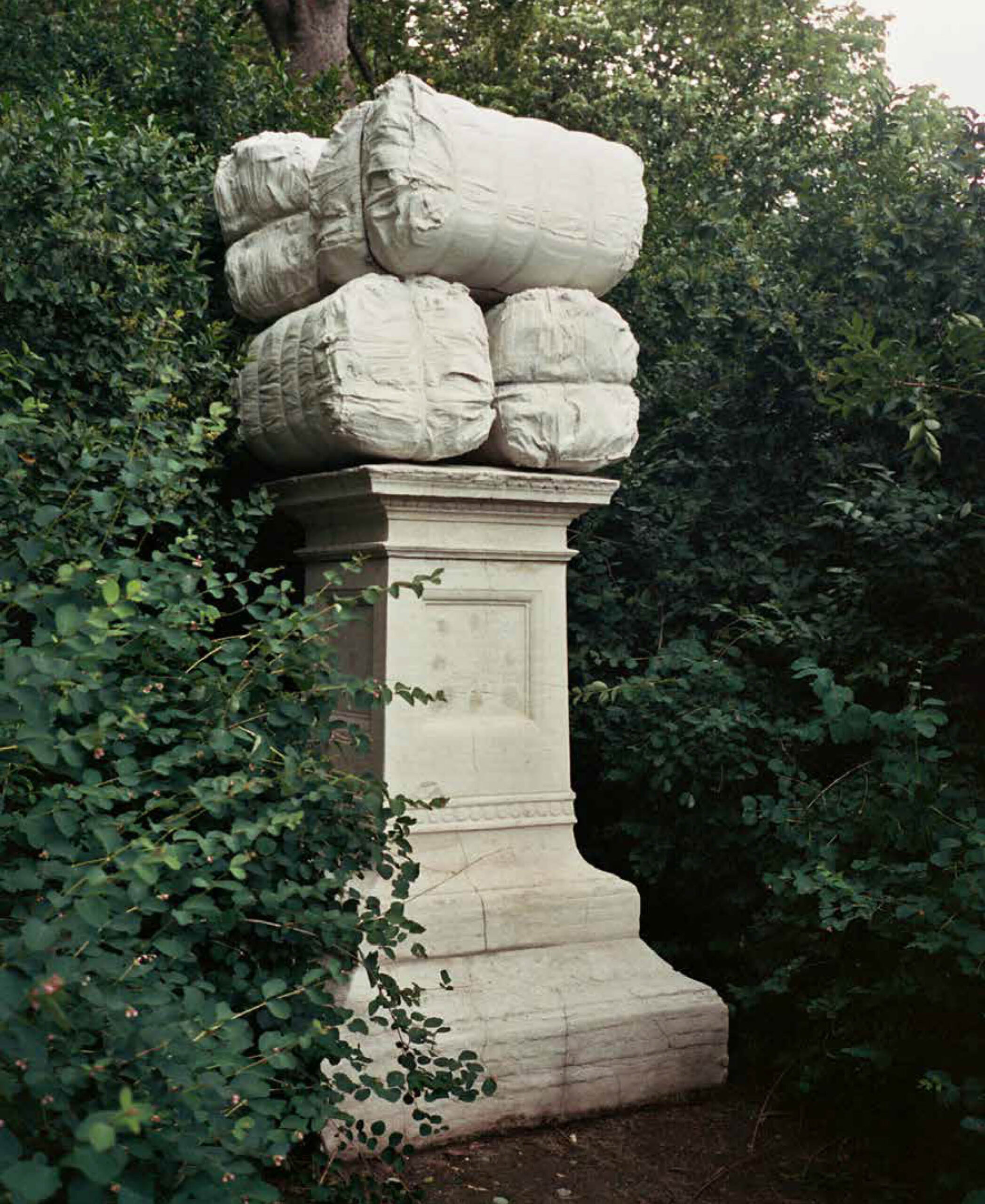
Import - Export, Friperie:
Selected Bales
Sam De Buysere, Miles Fischler, Axel Korban,
Thor Salden, Stine Sampers en Joud Toamah
Invited by
Mekhitar Garabedian
Design
Sara De Bondt
Year
2023
Publisher
Occasional Papers
Printer
Zwart op Wit
One free copy per person is available at the Kunstenbibliotheek front desk or through the artist, while limited stock lasts.
This publication coincides with the eponymous book Import - Export, Friperie and made to accompany the BOEKS exhibition..
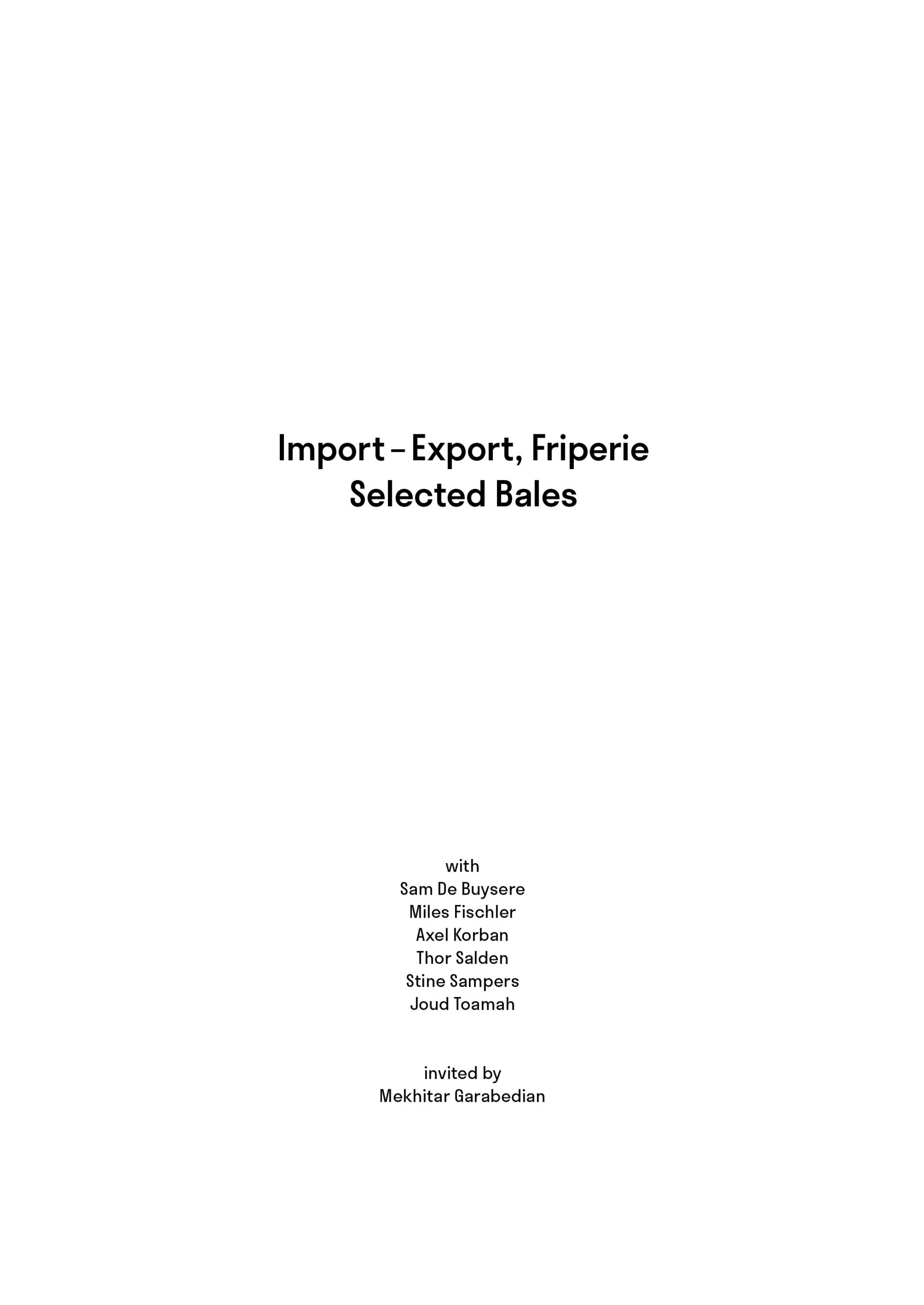


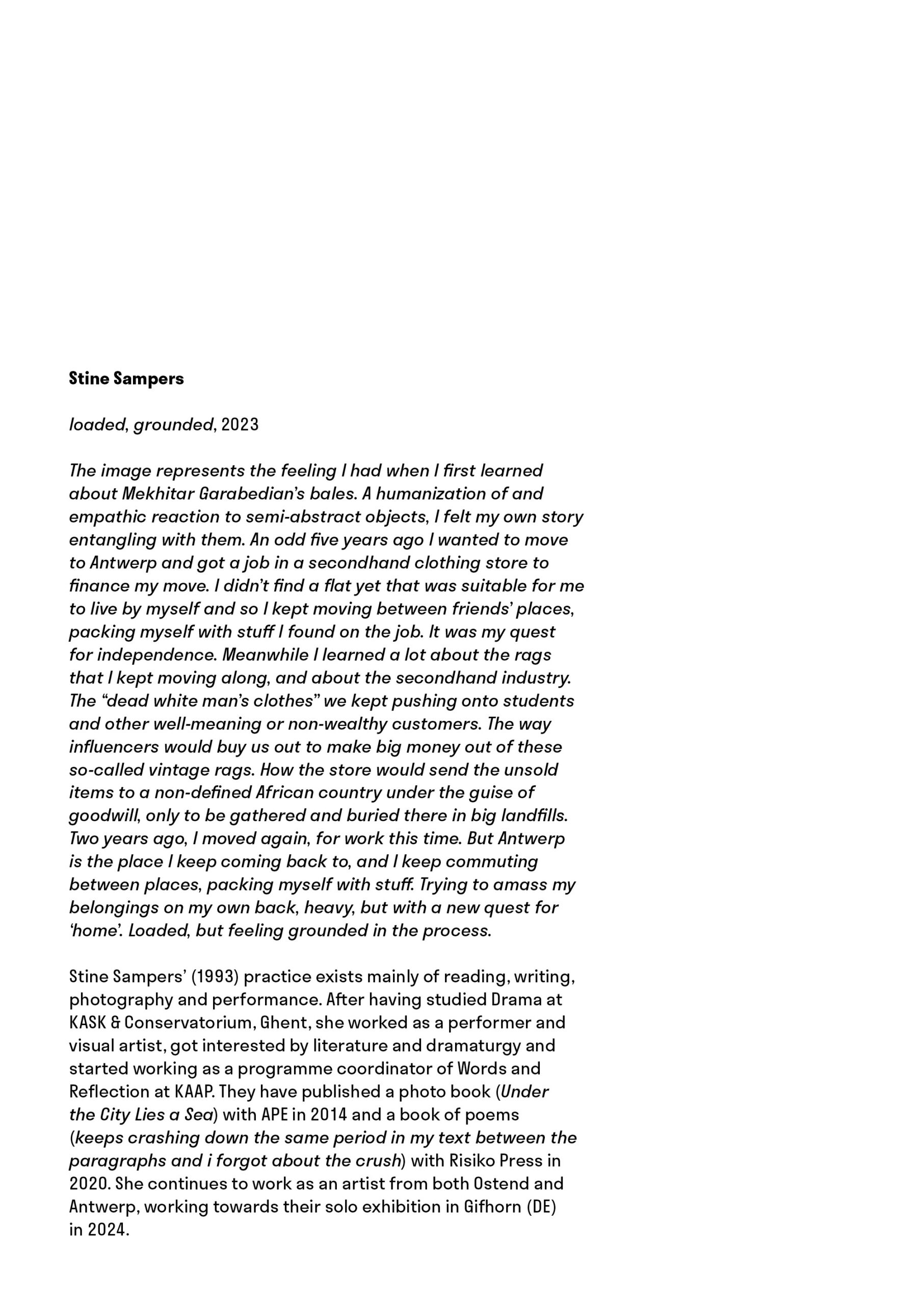
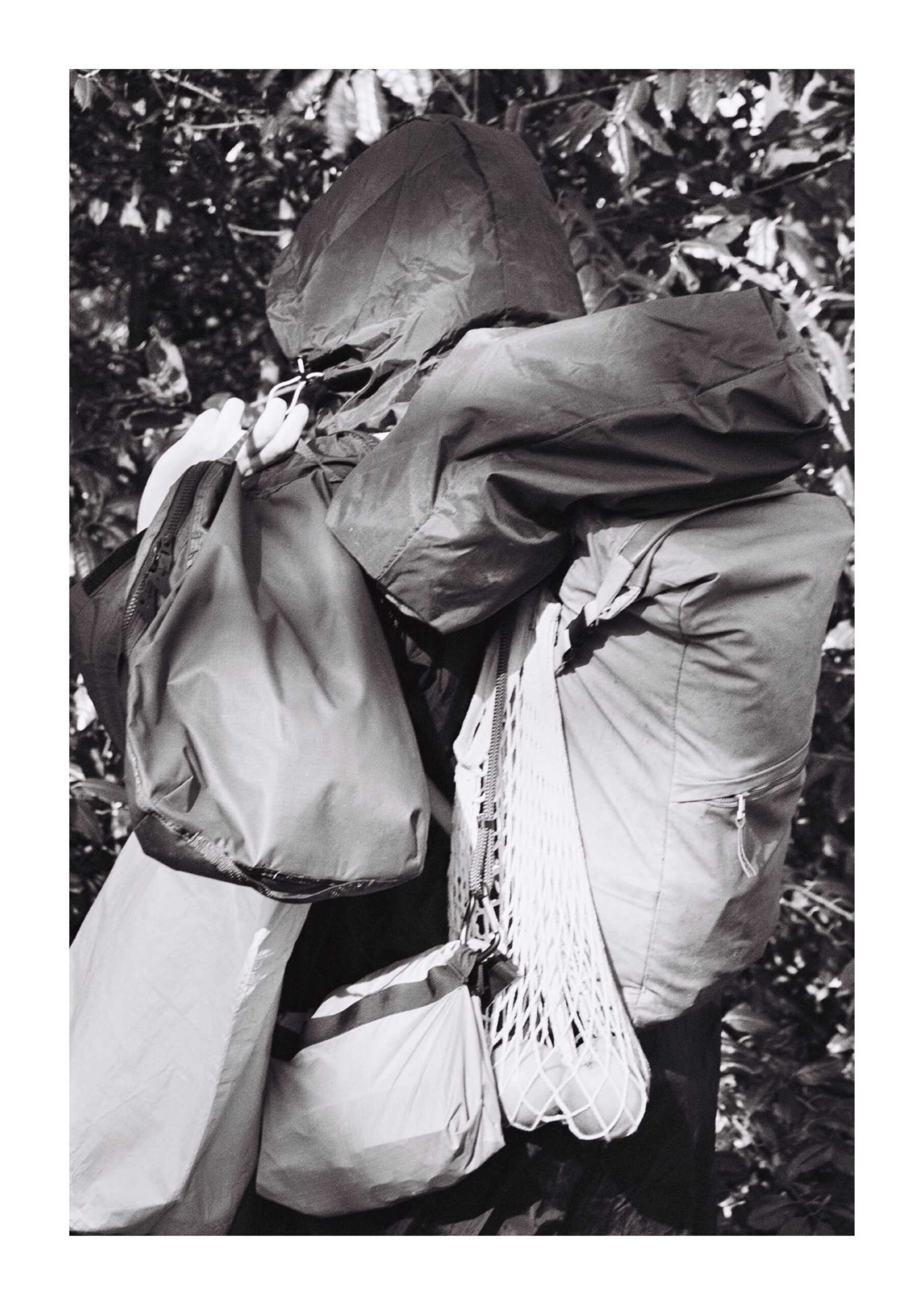
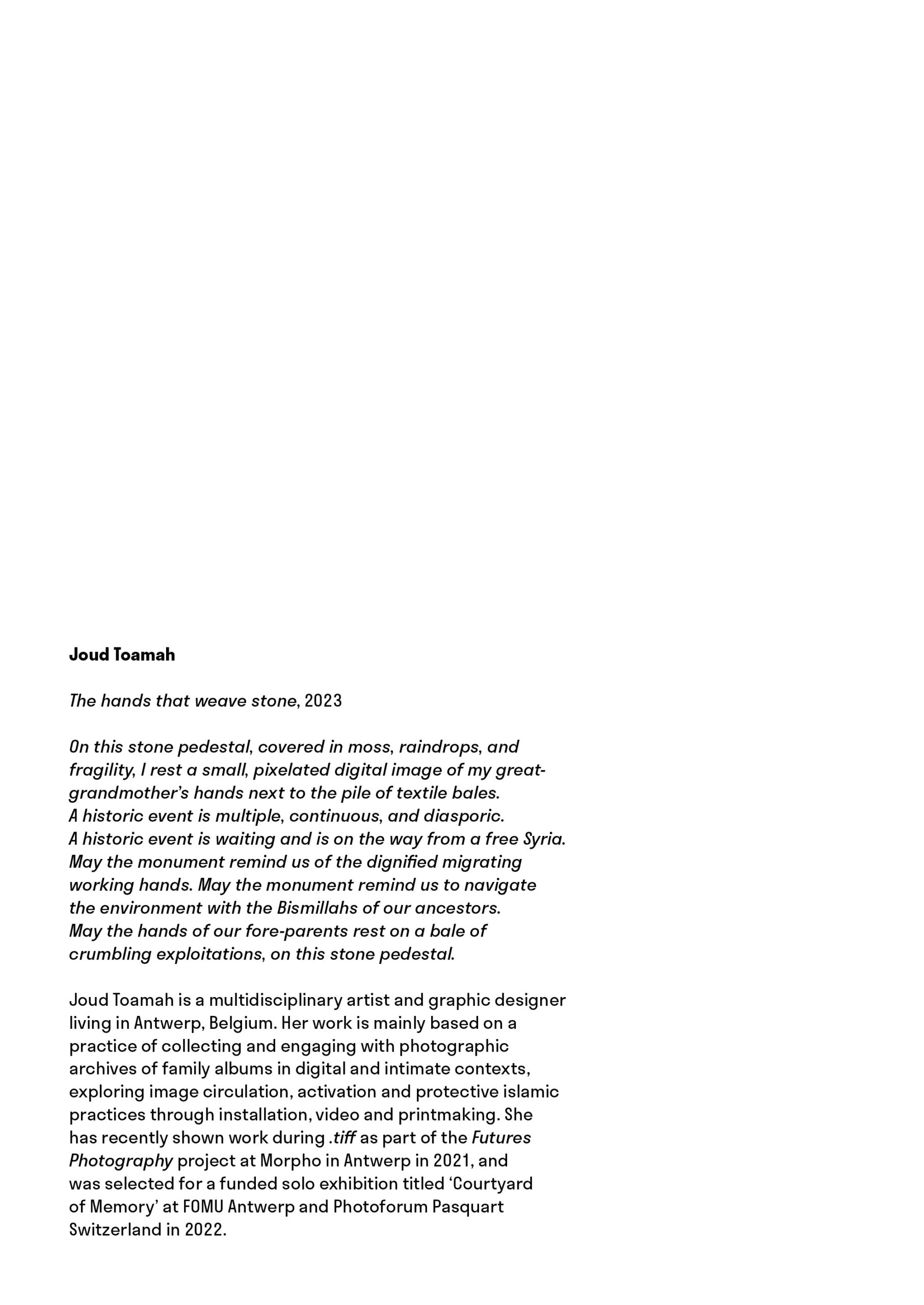
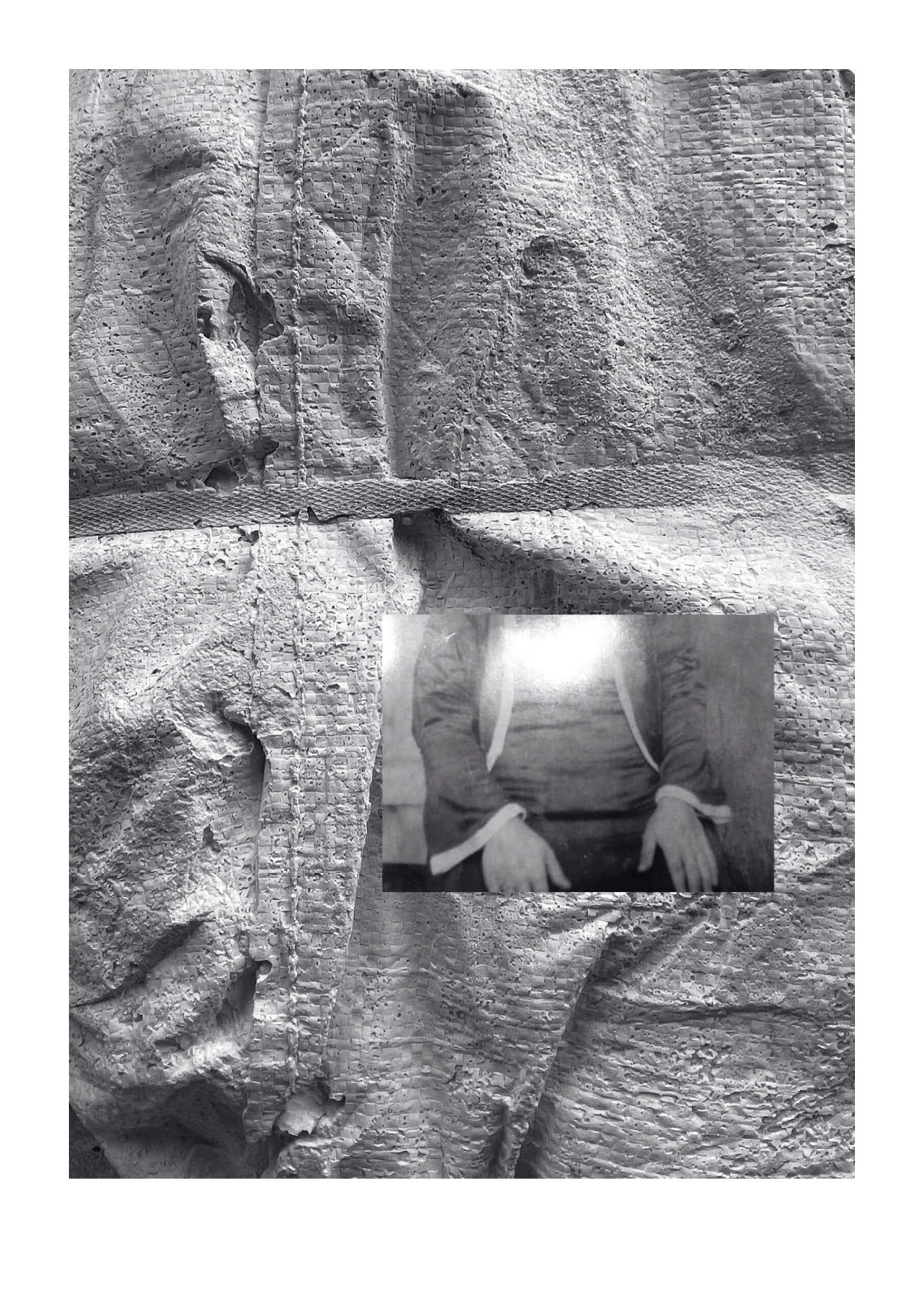
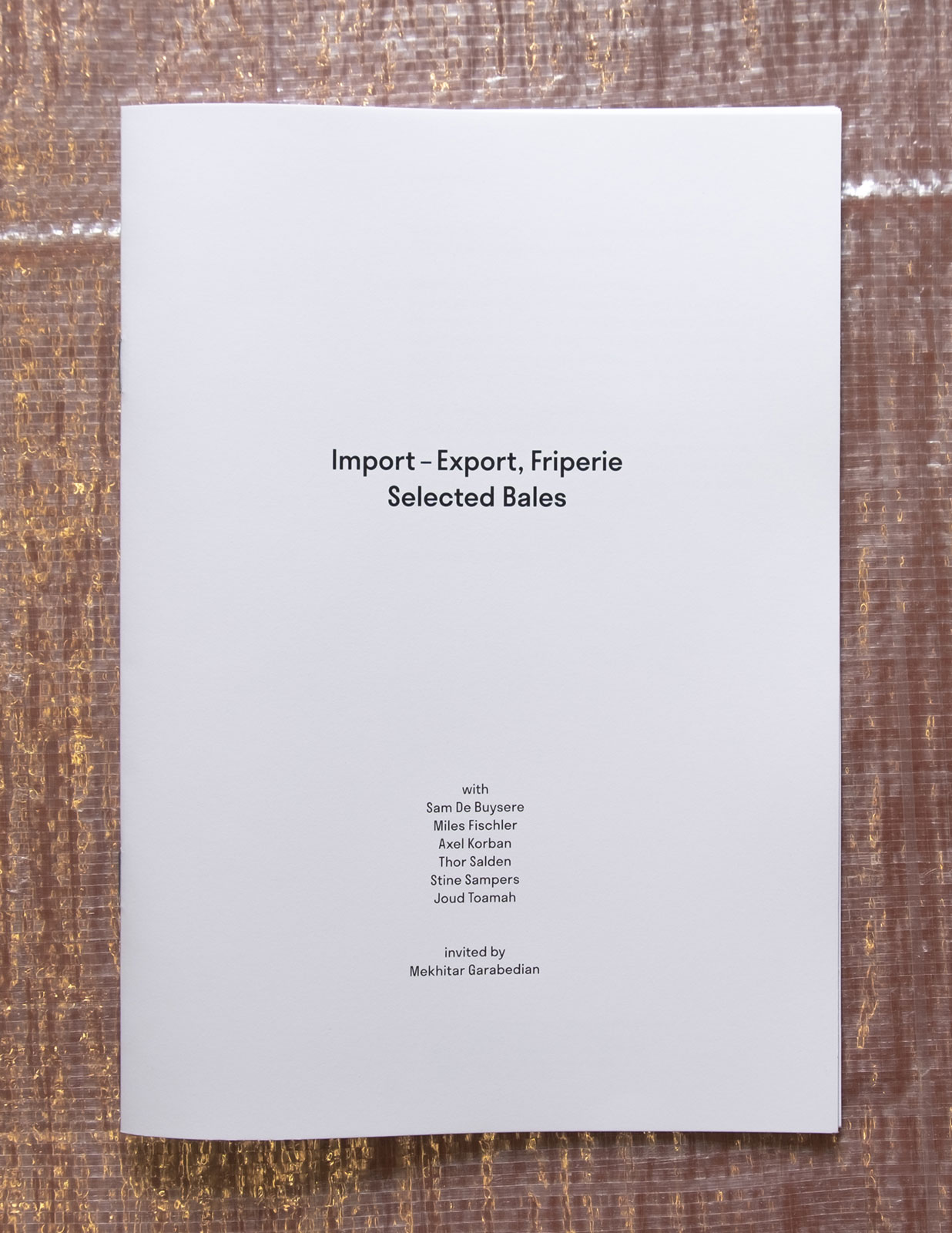
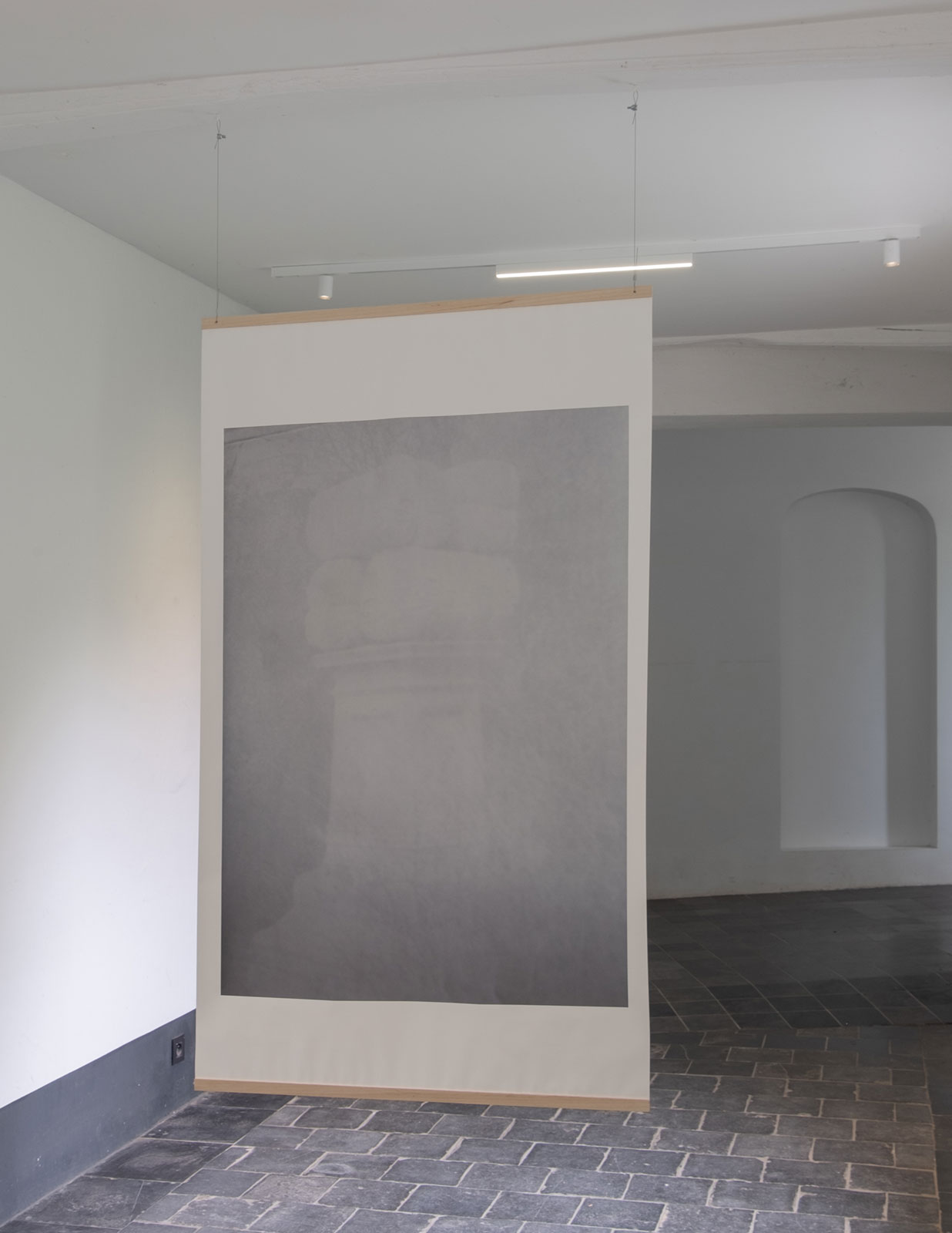
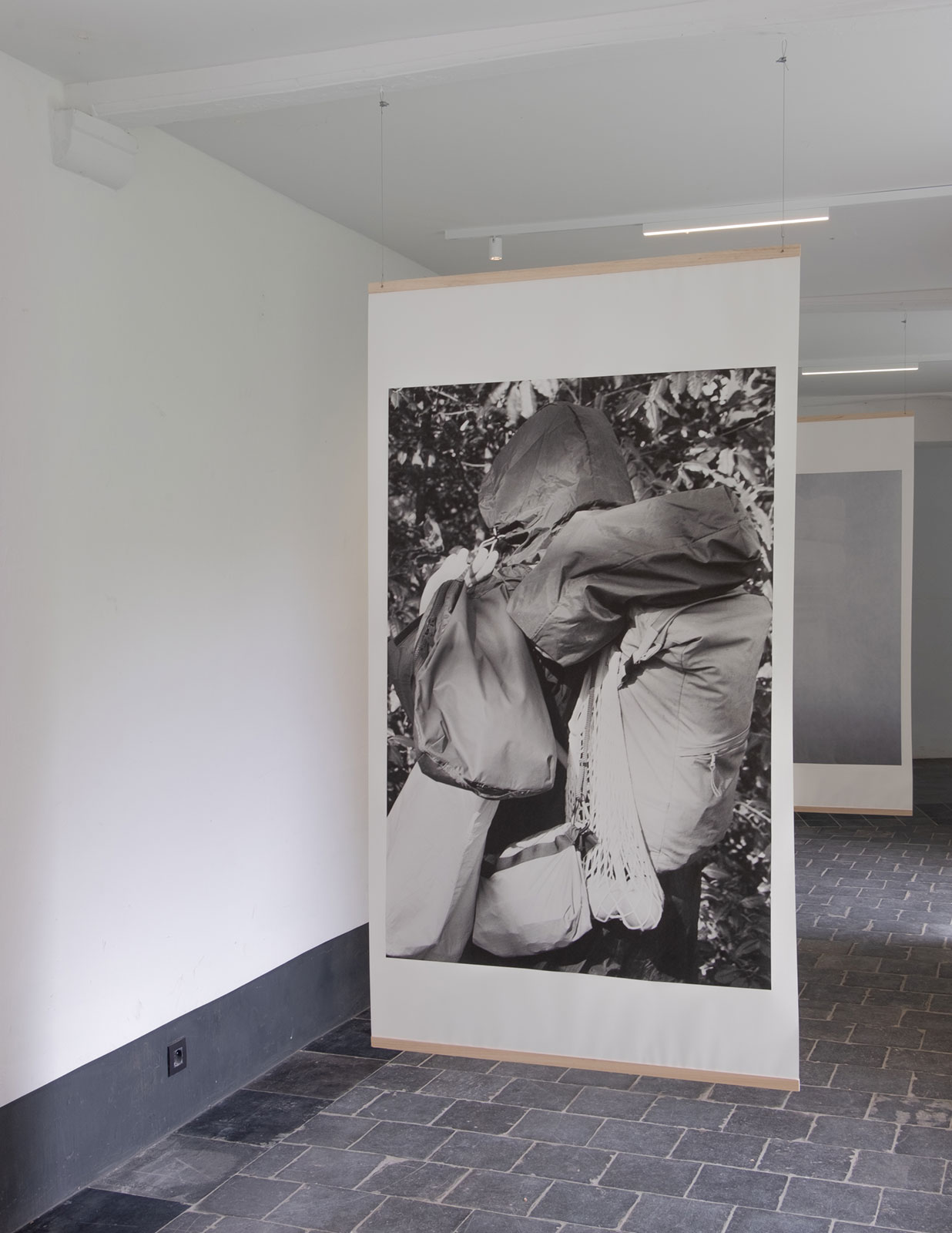

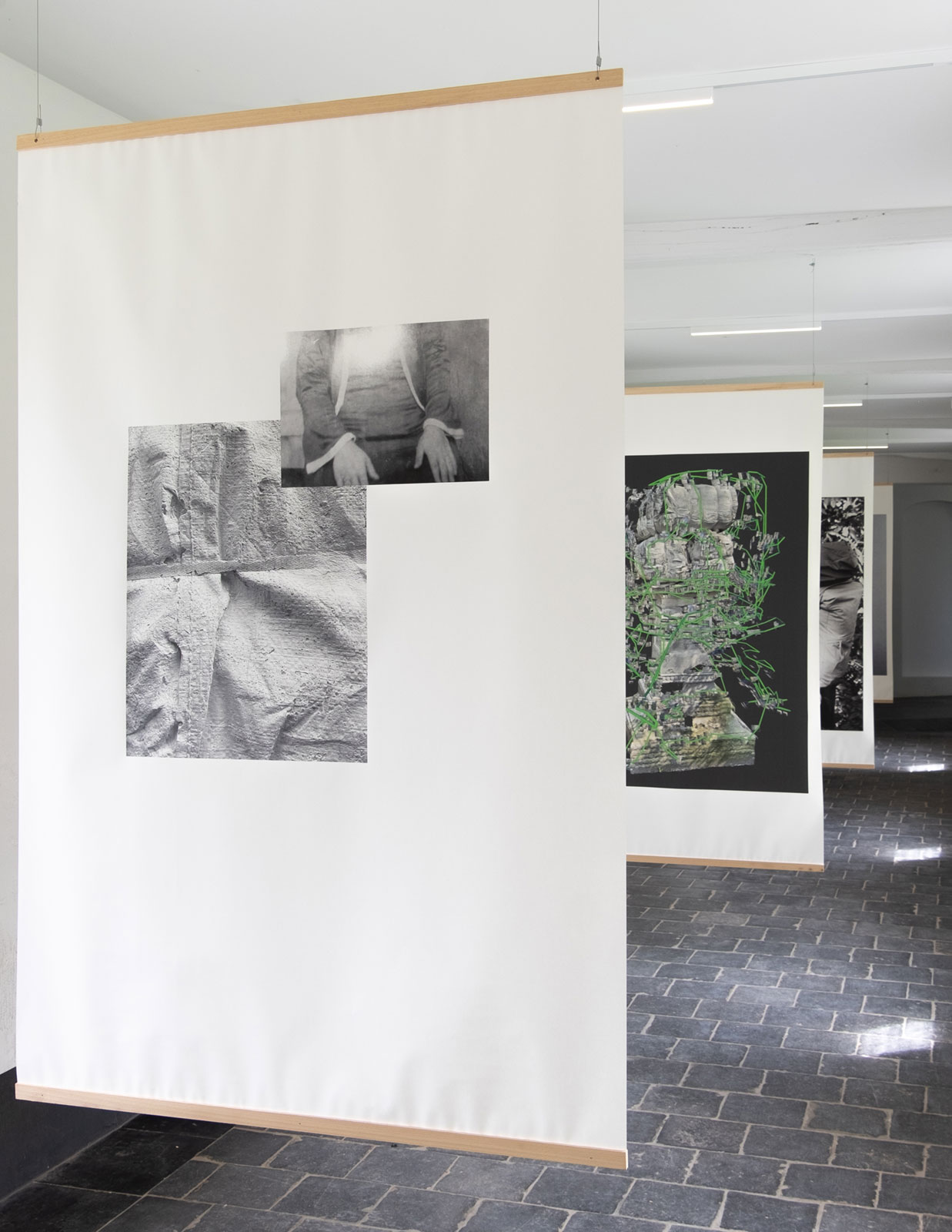
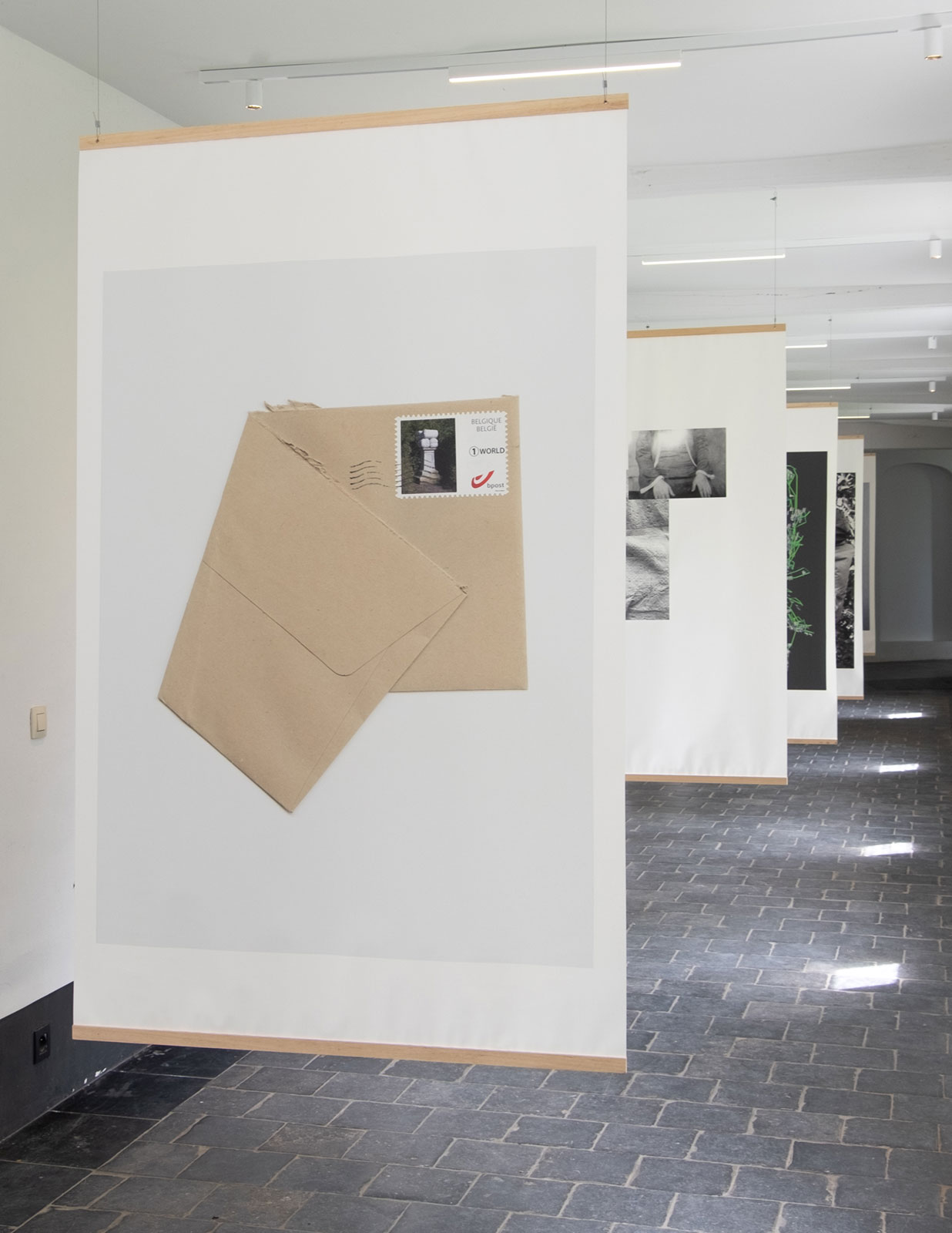
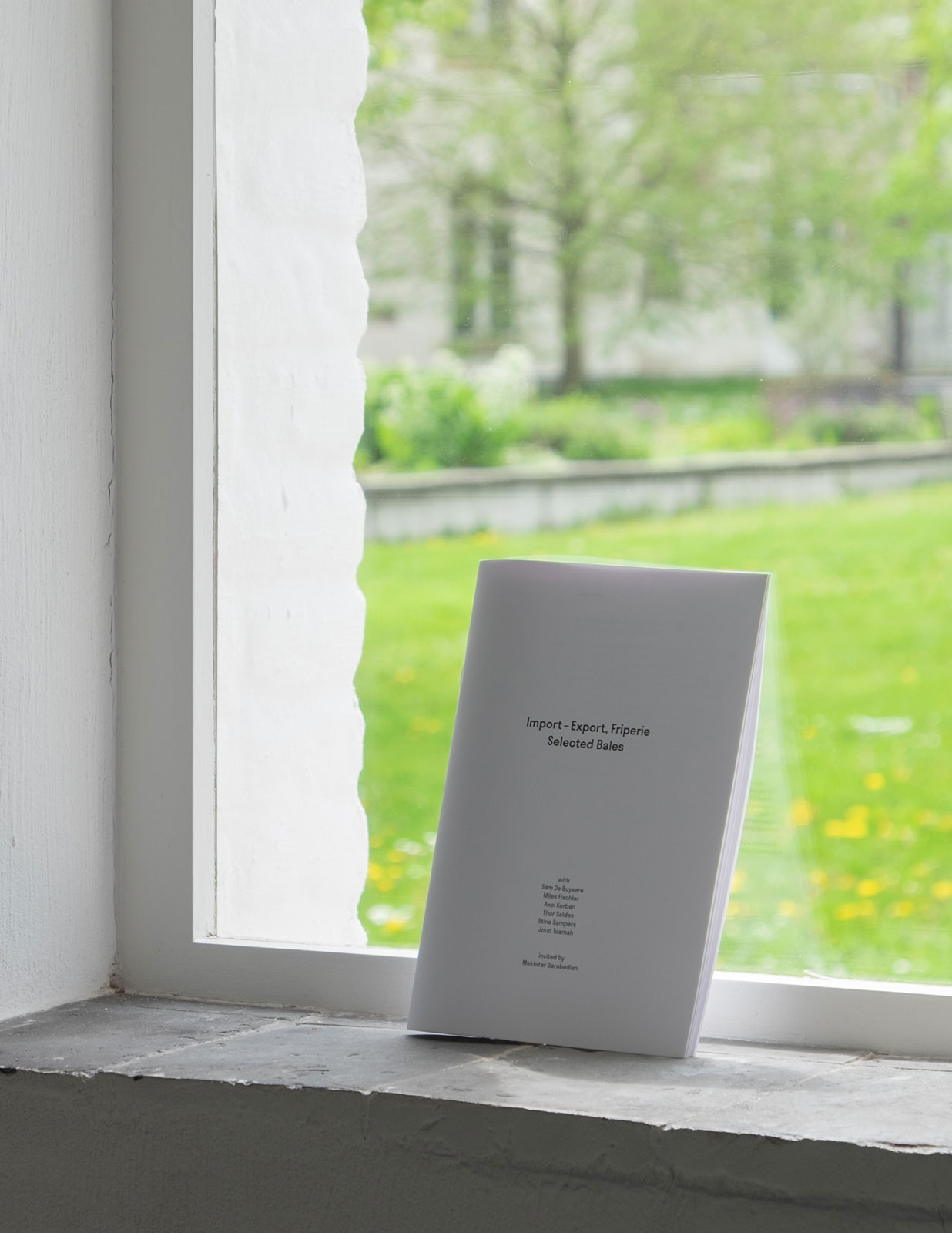
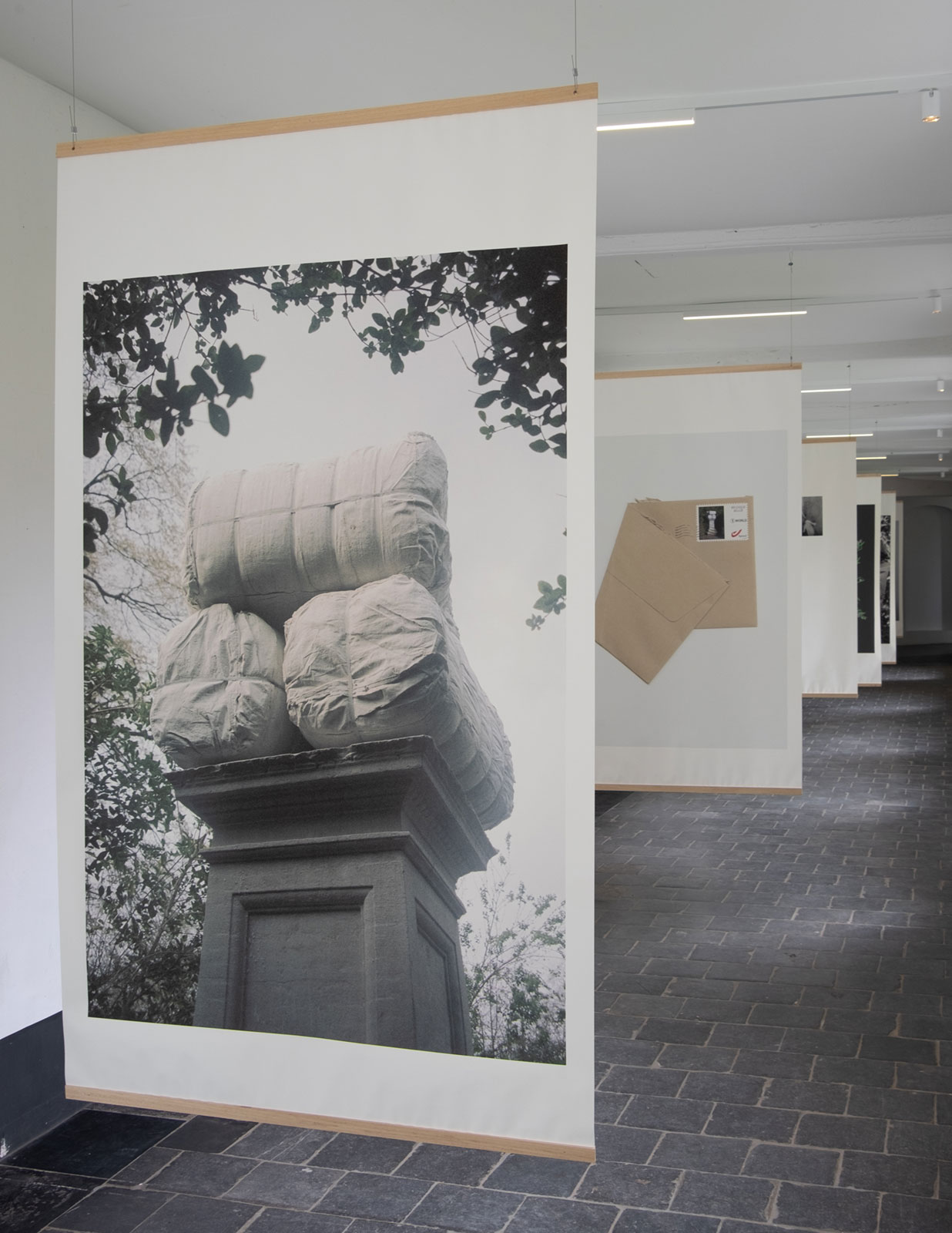
Exhibition views © Sam De Buysere
Import - Export, Friperie
Selected Bales
A DUO BOOK PRESENTATION
04.05.2023, 19.00-22.00
Sam De Buysere, Miles Fischler, Axel Korban, Thor Salden, Stine Sampers & Joud Toamah
& EXHIBITION
05.05—26.05.2023
Invited by
Mekhitar Garabedian
You are cordially invited to the opening of Import-Export, Friperie — Selected Bales, an exhibition marking the launch of Mekhitar Garabedian's book, Import-Export, Friperie.
Garabedian's book is a photographic response to his eponymous one-year public sculpture, commissioned for the Antwerp Stadspark "Public Figure" plinth series in 2022—23. Both the sculpture and the book take as their starting point the second-hand textile company which the artist's late father established in Ghent in the 1980s.
Through the long-term project Import-Export, Friperie, Garabedian traces the aesthetic, linguistic, and affective economies borne of a personal story of displacement and belonging. In keeping with the project's dialogic nature, he has invited for the BOEKS exhibition a number of artists to engage with Import-Export, Friperie, including Sam De Buysere, Miles Fischler, Alex Korban, Thor Salden, Stine Sampers and Joud Toamah.
"The six artists I have invited to react to or engage with "Import – Export, Friperie" all took the sculpture into their own being-with-the-world, their own artistic language, multiplying it into six other worlds. Through shifting, adding, subtracting, and changing the work, they have created different narratives and perspectives."
— Mekhitar Garabedian
For the occasion of the exhibition, their contributions come together in the publication Import – Export, Friperie. Selected Bales. During the opening, the book will be handed out as an accompanying insert as well as Arak, a traditional drink found across the Mediterranean and the Middle-East, will be served.
With thanks to Liene Aerts (BOEKS), Katrien Vuylsteke Vanfleteren and David Depestel (Research Department, KASK & Conservatorium), Arthur Haegeman and Thomas Desmet (Graphic Design Department, KASK & Conservatorium), Samuel Saelemakers (Collectie Kunst in de Stad — Middelheim Museum, Antwerp), Sara Weyns (Middelheimmuseum), Sara De Bondt and Antony Hudek (Occasional Papers), Nina Hendrickx, and, not least, Yalla Yalla.


A selection of spreads from the book Import-Export, Friperie, as designed by Sara De Bondt
& quotes from Mekhitar Garabedian from the conversation between him and Samuel Saelemakers,
as published in the book (in order of appearance in book and text):
I felt that I had to document this space, my father’s warehouse, now. It was so central and near to us as a family, but I had never photographed it, not properly. Each time I was there, different things would attract me, like the objects or the light coming through the textured glass windows. The selection for this book is made from photographs I took between March and July 2012, the first time I visited the warehouse in this way. Later, I continued going there intermittently.

I took them when the warehouse was still, after working hours. What interested me as subject matter was not the labour that went on there. If that had been the case, I would have gone to other factories. I was interested in this place, the objects, the remains and the products of the activities, the bales of clothing and how they were stacked, as well as the packing, colours, and repetition.

Another way to put it would be that the camera is a kind of archiving machine: every image it produces is a priori an archival object. In this sense, I think of these images from ten years ago as found images. Instead of making new ones, why not work with images that I’ve taken and ‘kept in a box’? Why not reuse them as ‘found’ objects? Because every photograph is a found object in a way.

To come back to the photographs from 2012, I did feel like I was revisiting a partly forgotten self, the one who made the pictures, and rediscovering what he was trying to capture, seeing where it failed and worked. But my current self made the selection for this book, which could only be made now. Choosing the images was a slow process that took several months.

I turn to my family, documenting the parental house – mapping and scanning it – because it’s the place of everyday customs, like cooking, which carry markers of the diasporic experience. This experience is an intimate one. It affects subjectivity and the self. Diaspora means experiencing a disseminated, shattered, divided self.

Placing casts of textile bales does focus the viewers’ attention on timelines of trade, transport, and exchange. In the 1980s, the export market for my father’s company was mainly Syria and Lebanon, because of economic sanctions prohibiting European exports to Syria. Later new export markets opened, such as Benin, Ghana, Ivory Coast, and Pakistan. While in Europe the clothing inside the bales were discards, they were valuable elsewhere, at least until the global spread of cheap, mass-produced new clothing. (…) My father worked beyond retirement age – he was seventy when the company closed. He was someone who worked a lot, and felt the decline of this economic model very closely. It was difficult for him to let go, and to see it come to an end. It must have been hard to admit that this part of his life had concluded. In the words of philosopher Vinciane Despret, this book is a way for me to keep “a space for him”


Import - Export, Friperie
Author
Mekhitar Garabedian
Design
Sara De Bondt
Year
2023
Publisher
Occasional Papers
Printer
Die Keure
€22 / €18 for KASK & Conservatorium students
Browse and buy at the Kunstenbibliotheek front desk or online from Occasional Papers
The publication follows the public presentation of Mekhitar Garabedian’s eponymous sculpture Import - Export, Friperie (2022) in the Antwerp Stadspark from May 2022 to April 2023. The sculpture is the fourth in the Public Figure series commissioned by Samuel Saelemakers, curator of the Antwerp Public Art Collection (Collectie Kunst in de Stad/Middelheimmuseum), which invites artists to make new work in response to the question “Who or what do we put on a pedestal today?”.



Import - Export, Friperie:
Selected Bales
Sam De Buysere, Miles Fischler, Axel Korban,
Thor Salden, Stine Sampers en Joud Toamah
Invited by
Mekhitar Garabedian
Design
Sara De Bondt
Year
2023
Publisher
Occasional Papers
Printer
Zwart op Wit
One free copy per person is available at the Kunstenbibliotheek front desk or through the artist, while limited stock lasts.
This publication coincides with the eponymous book Import - Export, Friperie and made to accompany the BOEKS exhibition..








Exhibition views © Sam De Buysere